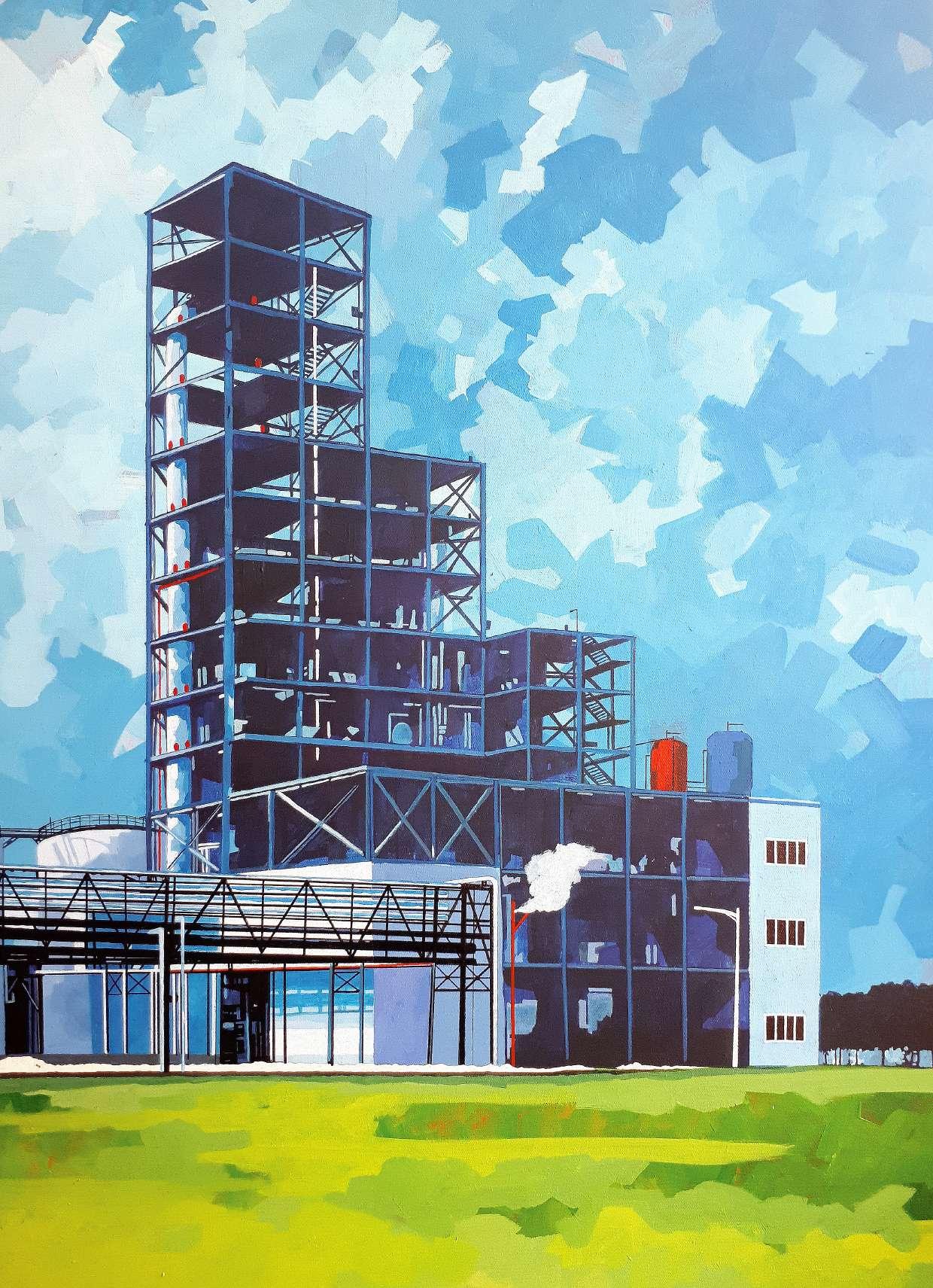

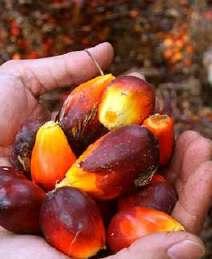

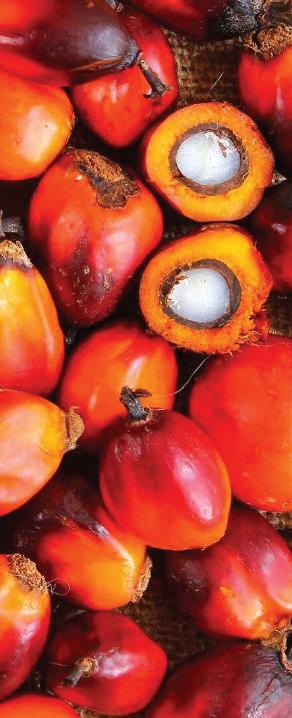





Affiliated With : fireworks business information Indonesia A Publication of : PALM OIL DEMAND TO RISE IN 2023 TO 20 MILLION Tons PERMINTAAN MINYAK SAWIT AKAN NAIK TAHUN 2023 MENJADI 20 JUTA TON An Interview with: Market Transformation Direction, Roundtable on Sustainable Palm Oil (RSPO) Ms. Inke Van Der Sluijs Vol.4 No.2 april - juNe 2023 OCTOBER 2023 4-6 SANTIKA PREMIERE DYANDRA HOTEL & CONVENTION MEDAN - INDONESIA THE WORLD'S LARGEST PALM OIL EVENT AT THE HEART OF THE INDUSTRY! INDUSTRY NETWORKING LUNCH Technology Seminars International Conference highlights of the event www.palmoilexpo.com 9th INDONESIA INTERNATIONAL PALM OIL CONFERENCE 2023 Incorporating : MORE ABOUT INDONESIA’S LARGEST PALM OIL EVENT TURN TO PAGE 13 +62 21 5088 2917 info@fireworksid.com












WE, WITH SUCCESSFUL EXPERIENCE IN PROVIDING MACHINE MODIFICATION SERVICE TO CUSTOMERS’ EXISTING UNITS (REGARDLESS BRAND AND MODEL) TO ACHIEVE HIGHER EFFICIENCY AND BETTER PERFORMANCE










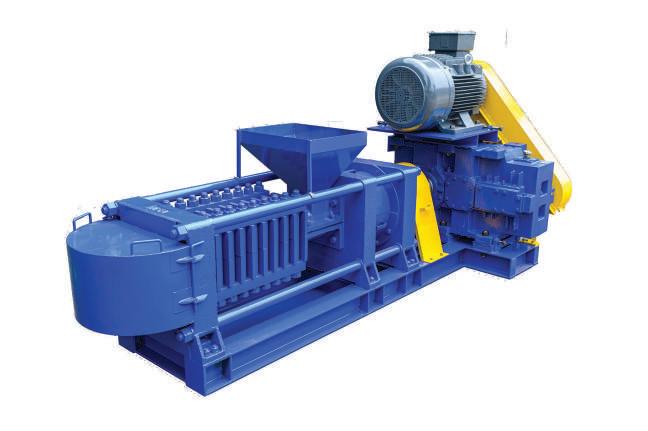




TRUSTED PALM KERNEL OIL EXPELLER MANUFACTURER NEE SOON TEKNIK SDN BHD (Reg. No 200501003218 (680264-U)) Lot 2977, Batu 3 1/2, Jalan Salleh, 84000, Muar, Johor Darul Takzim +06 952 2364/ +606 951 6298 +606 951 6549 info@neesoonteknik.com.my www.nst-intl.com Nee Soon Teknik Sdn Bhd LEADING INNOVATION EVOLUTION AND OPTIMIZATION
TM NST30PK PALM KERNEL OIL EXPELLER Capacity: 28-32T/ 24 Hours
Dear valued readers,
We are thrilled to present the latest edition of Palm Oil Today Indonesia, packed with the most up-to-date information on the newest developments in palm oil technology and the latest news on palm oil sustainability. Our team has worked hard to bring you insightful and thought-provoking articles that cover a wide range of topics related to the palm oil industry.
In this edition, we delve into the latest advances in palm oil processing and explore how cutting-edge technologies are driving improvements in productivity and efficiency. We also take a deep dive into the challenges facing the industry in achieving sustainable palm oil production and highlight the important efforts being made to promote environmental and social responsibility in the sector.
We would like to take this opportunity to thank our loyal subscribers for their continued support. Your feedback and input are invaluable to us, and we are committed to bringing you the most relevant and informative content in the palm oil industry.
We hope you enjoy reading this edition of Palm Oil Today Indonesia and look forward to your continued engagement with us.
Yours truly, Susan
Tricia
Publications Manager
Amelia Lim
amelia@fireworksid.com
Editorial Consultant
Kenny Yong
Content Editor
Nur Atthirah Zawanah Azmee
Media Executives
Paulina Shu
Veronica Anugrah
Graphic Designer

Felicia Zhang

Indonesia
fireworks business information
Fireworks Business Information (FBI) Indonesia
Jakarta
Batam
Publisher : +62 778 488 3726 indo@asiafbi.com
Palm Oil Indonesia Today Digital Editions Available! Log on to: www.indopalmoil.com
c/o PT. Fireworks Indonesi a
EDITOR’S
The content of Palm Oil Indonesia Today Magazine (and website) does not necessarily reflect the views of the editor or publishers and are the views of its contributors and advertisers. The digital edition may include hyperlinks to third-party content, advertising, or websites, provided for the sake of convenience and interest. The publishers accept no legal responsibility for loss arising from information in this publication and do not endorse any advertising or products available from external sources. Palm Oil Indonesia Today Magazine and its website does not warrant that the information in it will be error-free or will meet any particular criteria of performance or quality. Your use of the information contained in the Palm Oil Indonesia Today magazine and website is at your own risk. You assume full responsibility and risk of loss resulting from the use of this website or information in it. None of Palm Oil Indonesia Today, PT Fireworks Indonesia or its affiliates, or any partners, principals, stockholders or employees of any thereof will be liable for any special, indirect, incidental, consequential or punitive damages or any other damages whatsoever, whether in an action of contract, statute, tort (including, without limitation, negligence) or otherwise, relating to the use of this website or information contained in it. No part of this publication may be reproduced or stored in a retrieval system without the written consent of the publishers. All rights reserved. DISCLAIMER
NOTE



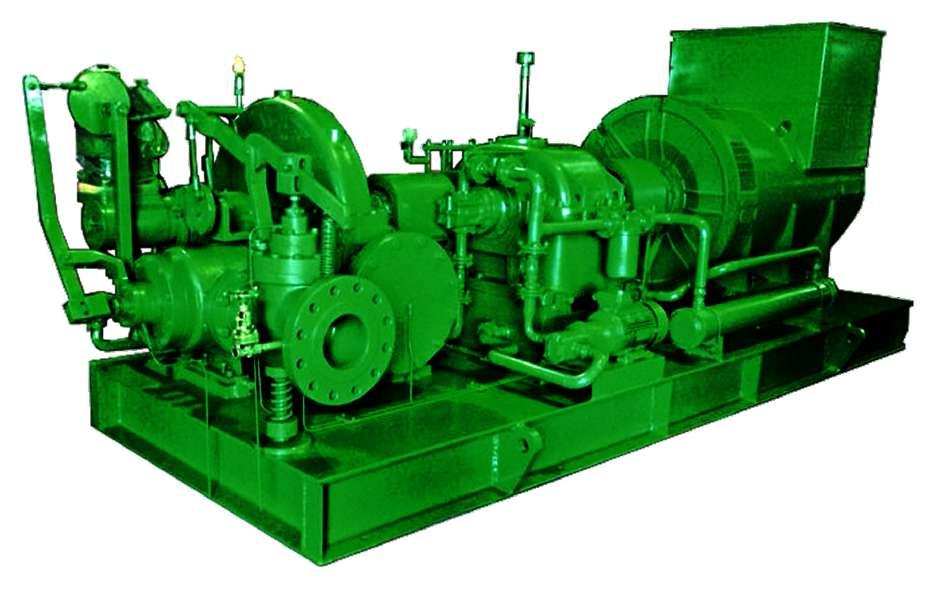





Designed in the USA with over 70 years of total steam turbine experience Jasa Aman Engineering SDN BHD Jasa Aman Sales and Services SDN BHD 39/39A, Jalan 23, Taman Bukit Kuchai, Batu 8, Jalan 47100 Puchong, Selangor Darul Ehsan, Malaysia Tel: +603-8075 6521, 8075 6750 Fax: +603-8070 2436, 8075 6485 Email: primeturbine@jasaaman.com Web: www.jasaaman.com 3500 7000 20 28M
CONTENTS
BERITA REGIONAL / REGIONAL NEWS
Kebijakan bahan bakar nabati , cuaca kering mengakibatkan harga minyak kelapa sawit tetap tinggi
Indonesia’s biodiesel policy, dry weather to keep palm oil prices elevated
Indonesia semakin mengekang ekspor minyak
Indonesia further curbs palm oil exports
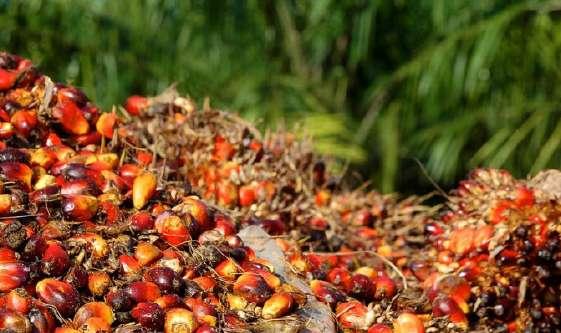
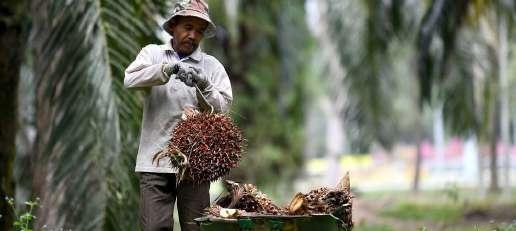
B35 akan memacu peningkatan 2 juta ton permintaaan minyak kelapa sawit domestik
B35 to spur 2 million-ton increase in domestic palm oil demand

Sabah tetap menjadi produsen minyak kelapa sawit regional yang signifikan meskipun hasil panennya menurun
Sabah remains significant regional palm oil producer despite decline in yields
Indonesia, malaysia akan mengirimkan utusan kelapa sawit ke UE

Indonesia, malaysia will send their Palm oil representative to UE
BERITA DUNIA / WORLD NEWS
Mesir, Malaysia membahas peluang investasi minyak kelapa sawit
:
:
Egypt, Malaysia to discuss investment opportunities in palm oil
Lebih dari 80 petani kelapa sawit dan lainnya diuntungkan dari pembangunan kapasitas RSPO di Edo
Over 80 palm oil farmers and others had the benefit from RSPO capacity building in Edo Indonesia serahkan ketua CPOPC ke Malaysia Indonesia hands-over the Chairman of CPOPC to Malaysia
BERITA UTAMA / COVER STORY
Permintaan minyak sawit akan naik tahun 2023 menjadi 20 juta ton
Palm oil demand to rise in 2023 to 20 million tons
Raja kelapa sawit Indonesia Darmadi dijatuhkan hukuman

penjara 15 tahun atas dakwaan korupsi
Indonesia’s palm oil tycoon Darmadi gets 15 years of sentence for corruption
COMMENTARY
24 (BHS) : Kelapa sawit Indonesia di Titik Kritis: Berkembang atau menurun?
(ENG) : Indonesian palm oil at critical juncture: will it thrive or dive?
BERITA PERKEBUNAN / PLANTATION NEWS
Perusahaan kelapa sawit harus mengganti pohon tua atau musnah, kata pengawas
Palm oil firms must replace old trees or perish, said supervisor
Menteri mempercepat peremajaan perkebunan
kelapa sawit petani kecil
Minister to accelerate replanting of smallholder oil palm plantations
Kesulitan tenaga kerja mereda
Labour woes easing
Palm Oil Today Indonesia April - June 2023 www.indopalmoil.com
6 (BHS) : (ENG) : 8 (BHS) : (ENG) : 9 (BHS) : (ENG) : 10 (BHS) : (ENG) : 12 (BHS) : (ENG) : 14 (BHS)
(ENG)
15 (BHS)
(ENG)
18 (BHS)
(ENG)
18 (BHS) : (ENG) : 20 (BHS) : (ENG) : 26 (BHS) : (ENG) : 28 (BHS) : (ENG) : 29 (BHS) : (ENG) :
// APRIL - JUNE 2023
:
:
:
:
CONTENTS
BERITA KELANJUTAN / SUSTAINABILITY NEWS
31 (BHS) : (ENG) :
34 (BHS) :
(ENG) :
Industri minyak kelapa sawit akan tetap menjadi tulang punggung perekonomian nasional yang krusial: VP
The palm oil industry will continue to play a critical role in the national economy : VP
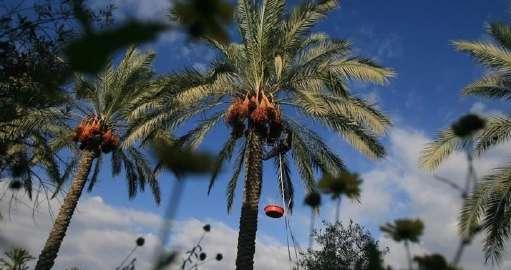
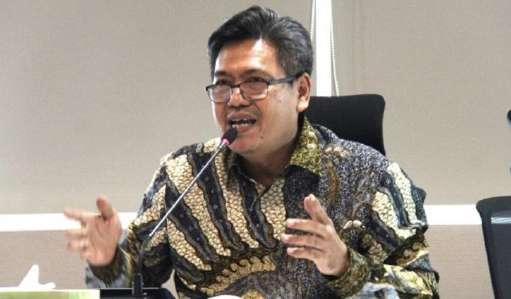
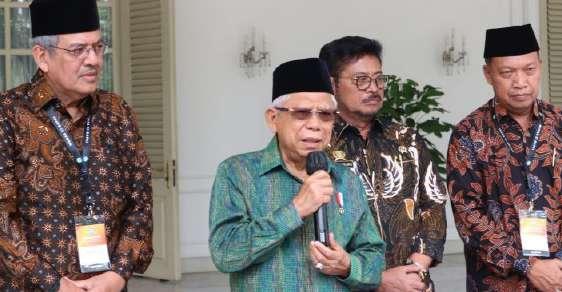
Godrej Agrovet bekerjasama dengan Pemerintah
Negara Bagian Andhra Pradesh
Godrej Agrovet collaborates with State Government of Andhra Pradesh

36 (ENG) :
IN
An Interview with Inke Van Der Sluijs, Market Transformation Direction, Roundtable on Sustainable Palm Oil (RSPO) Sustainability and Palm Oil’s Future
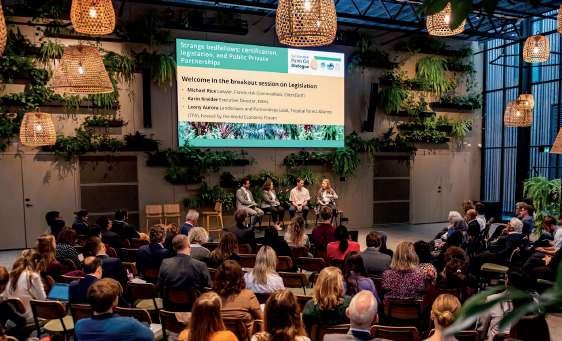

INOVASI DAN TEKNOLOGI / INNOVATION & TECHNOLOGY
Pemerintah mendukung teknologi pengolahan kelapa sawit, pengembangan SDM Govt supporting palm processing technology, HR development
Industri kelapa sawit melirik robot, mesin nirawak untuk menghadapi kekurangan tenaga kerja Palm oil industry eyes robots, drones to combat labour crunch
www.indopalmoil.com Palm Oil Today Indonesia April - June 2023
// APRIL - JUNE 2023
40 (BHS) : (ENG) : 42 (BHS) : (ENG) :
THE HOT SEAT
KEBIJAKAN BAHAN BAKAR NABATI , CUACA KERING MENGAKIBATKAN HARGA
KUALA LUMPUR, 8 Maret (Reuters) – Kebijakan bahan bakar nabati Indonesia dan kemungkinan munculnya pola cuaca El Nino dapat semakin menekan persediaan global minyak goreng yang paling banyak digunakan, mengangkat harganya di akhir tahun, kata pejabat industri terkemuka dan analis dalam sebuah konferensi.
Pasar minyak nabati akan mengetat selama setahun mulai dari pertengahan 2023 karena produksi bahan bakar nabati global dapat meningkat sebanyak 4,5 juta ton pada tahun 2023, kata analis industri terkemuka Thomas Mielke dalam sebuah konferensi minyak kelapa sawit di Kuala Lumpur.
Indonesia, produsen minyak kelapa sawit terbesar di dunia, meningkatkan kandungan wajib minyak kelapa sawit dalam bahan bakar nabati menjadi 35% sejak bulan Februari, dari 30% sebelumnya, untuk mengurangi bahan bakar impor di tengah tingginya harga energi global dan untuk mengurangi emisi. “Meningkatnya permintaan dan pertumbuhan yang terbatas dalam persediaan (minyak nabati) akan membawa kita ke defisit produksi global dalam bulan Juli hingga Desember tahun ini dan Januari hingga Juni 2024,” kata Mielke, kepala perusahaan riset Oil World yang berbasis di Hamburg. Dia memperkirakan harga minyak kelapa sawit olein olahan yang diputihkan (refined bleached deodorized / RBD) Malaysia akan meningkat hampir 16% menjadi $1.150 per ton pada paruh kedua tahun 2023.
Produksi Malaysia pada tahun 2023 kemungkinan akan naik 600.000 ton menjadi 19 juta ton, sementara produksi Indonesia akan meningkat 1,2 juta ton menjadi 47,7 ton, katanya. Dorab Mistry, direktur perusahaan barang konsumen India, Godrej International, memperkirakan minyak kelapa sawit Malaysia akan diperdagangkan di antara 4.000 hingga 5.000 Ringgit ($1.106) per ton dari sekarang hingga Agustus. Pembanding kontrak minyak kelapa sawit di Pertukaran Berjangka Bursa Malaysia turun 24 Ringgit menjadi 4.181 Ringgit per ton pada hari Rabu.
KETAKUTAN EL NINO
Produsen minyak kelapa sawit terkemuka Malaysia, seperti FGV Holdings (FGVH.KL) dan United Plantations (UTPS. KL) mengatakan kepada Reuters bahwa pola cauca El Nino, dipredisikan akan muncul pada pertengahan tahun ini, dapat mengurangi produksi di tahun 2024.
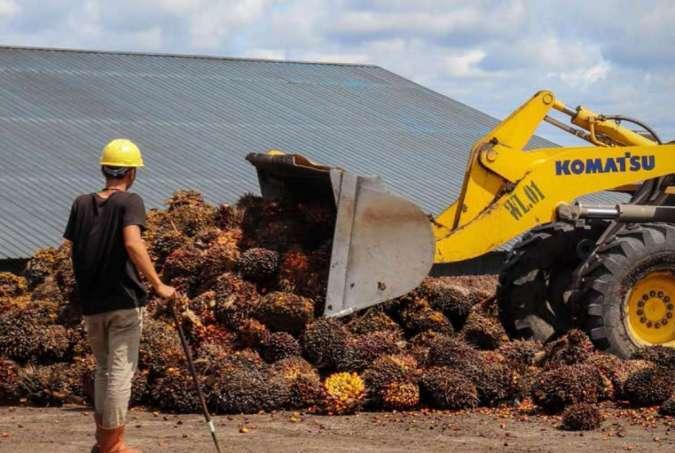
El Nino biasanya menghasilkan curah hujan di bawah rata-rata di produsen utama kelapa sawit Indonesia dan Malaysia, memangkas hasil panen dan meningkatkan harga global. Malaysia dan Indonesia sudah bergulat dengan cuaca lembab La Nina dan banjur yang telah membatasi produksi selama beberapa bulan terakhir. “Ini merupakan perubahan iklim... Alam telah menempatkan roket pendorong di bawah harga pertanian,” kata Mistry.
Indonesia, yang mengejutkan pasar dengan membatasi ekspor awal tahun ini, kemungkinan akan mengekspor lebih sedikit minyak kelapa sawit di tahun 2023 dibandingkan dengan tahun sebelumnya karena kewajiban bahan bakar nabatinya, Fadhil Hasan, kepala divisi perdagangan Gabungan Pengusahan Kelapa Sawit Indonesia (GAPKI). “Dulu sawit berorientasi ke ekspor bagi Indonesia, namun penjualannya menurun dan konsumsi domestik meningkat,” kata Fadhil.
James Fry, ketua konsultan komoditas LMC International, memperingatkan bahwa koreksi harga bahan bakar dapat menurunkan permintaan bahan bakar nabati dan menurunkan harga minyak kelapa sawit.
Fry mengatakan bahwa harga berjangka minyak kelapa sawit akan berada di rata-rata 3.760 Ringgit ($831,86) per ton pada tahun 2023, turun dari angkat 4.920 Ringgit di tahun 2022, tertekan oleh harga bahan bakar yang lebih rendah.
www.indopalmoil.com 6 REGIONAL NEWS
MINYAK KELAPA SAWIT TETAP TINGGI
INDONESIA’S BIODIESEL POLICY, DRY WEATHER TO KEEP PALM OIL PRICES ELEVATED
KUALA LUMPUR, March 8 (Reuters) - Indonesia’s biodiesel policy and the likely emergence of the El Nino weather pattern could further strain global inventories of the most used cooking oil, lifting prices later this year, leading industry officials and analysts said at a conference.
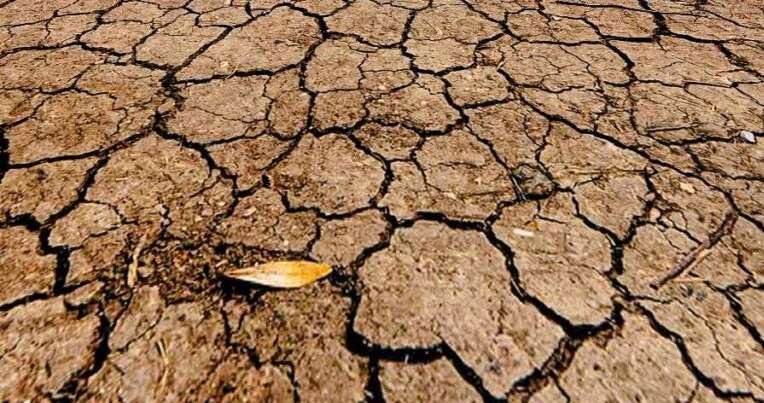
The market for vegetable oils is set to tighten for a year from mid-2023 as global biodiesel production could rise by around 4.5 million tons in 2023, leading industry analyst Thomas Mielke told a palm oil conference in Kuala Lumpur.
Indonesia, the world’s biggest producer of palm oil, raised the mandatory blend of palm oil in biodiesel to 35% starting in February, from 30% earlier, to reduce diesel fuel imports amid high global energy prices and to reduce emissions. “Rising demand and limited growth in (vegetable oil) supplies would bring us into a global production deficit in July to December this year and January to June 2024,” said Mielke, who heads Hamburg-based research firm Oil World. He forecast Malaysian refined bleached deodorized (RBD) palm olein prices could jump nearly 16% to $1,150 per tonne in the second half of 2023.

Malaysian production in 2023 is likely to rise by 600,000 tons to 19 million tons, while Indonesian production is seen rising by 1.2 million tons to 47.7 million tons, he said. Dorab Mistry, the director of Indian consumer goods company Godrej International, expects Malaysian palm oil to trade between 4,000 and 5,000 ringgit ($1,106) per tonne from now until August. The benchmark palm oil contract on the Bursa Malaysia Derivatives Exchange slid 24 ringgit to 4,181 ringgit a tonne on Wednesday.
EL NINO FEARS
Leading Malaysian palm oil producers, such as FGV Holdings (FGVH.KL) and United Plantations (UTPS.KL) told Reuters that the El Nino weather pattern, predicted to emerge mid-this year, could reduce production in 2024.
An El Nino episode usually results in below-average rainfall in main palm oil producers Indonesia and Malaysia, cutting yields and pushing up global prices. Malaysia and Indonesia are already grappling with La Nina-induced wet weather conditions and flooding that have curtailed production in the past few months. “This is climate change... Mother Nature has put a booster rocket under agricultural prices,” Mistry said.
Indonesia, which surprised the market by curbing exports earlier this year, is likely to export less palm oil in 2023 than it did last year because of its biodiesel mandate, said Fadhil Hasan, head of the trade and promotion division at the Indonesian Palm Oil Association (GAPKI). “It used to be palm oil is export-oriented for Indonesia, but sales are declining and domestic consumption is increasing,” Fadhil said.
James Fry, the chairman of commodities consultancy LMC International, however, cautioned that the correction in gasoil prices could bring down demand for biodiesel and pull-down palm oil prices.
Fry said palm oil futures will average 3,760 ringgit ($831.86) a tonne in 2023, down from 4,920 ringgit in 2022, pressured by lower gasoil prices.
www.indopalmoil.com Palm Oil Today Indonesia April - June 2023 7 REGIONAL NEWS
INDONESIA SEMAKIN MENGEKANG EKSPOR MINYAK
INDONESIA FURTHER CURBS PALM OIL EXPORTS
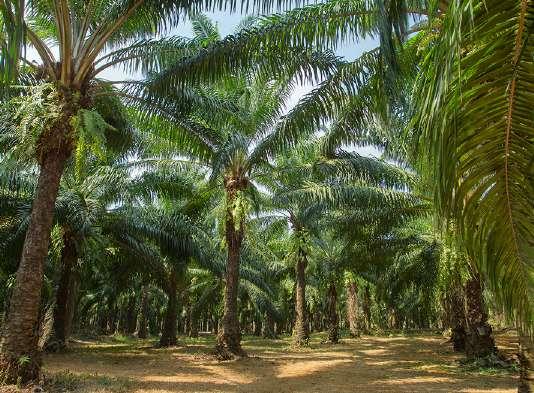
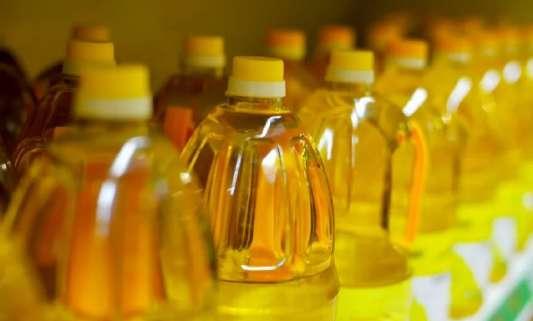
JAKARTA, INDONESIA — Sekitar 400.000 hingga 800.000 ton minyak kelapa sawit Indonesia diestimasikan akan diblokir dari pasar global selama tiga bulan ke depan setelah pemerintah mengatakan bahwa mereka akan menangguhkan dua pertiga ekspor minyak kelapa sawit untuk menopang persediaan minyak goreng domestik, menurut laporan Jaringan Informasi Pertanian Global dari Layanan Pertanian Asing Kementerian Pertanian AS.
Pada tanggal 6 Februari, Luhut Pandjaitan, Menteri Koordinator Bidang Maritim dan Investasi, mengatakan bahwa 66% izin ekspor minyak kelapa sawit (izin yang telah dikeluarkan untuk perusahaan yang mematuhi kebijakan Kewajiban Pasar Domestik pemerintah) akan ditangguhkan segera hingga tanggal 1 Mei.

Keputusan pemerintah untuk menangguhkan dua pertiga ekspor minyak kelapa sawit dilakukan sebagai respon kenaikan harga minyak goreng dan untuk memastikan persediaan menjelang Ramadan dan Lebaran. Selain kenaikan harga, konsumen di beberapa wilayah di Indonesia melaporkan kesulitan mendapatkan minyak goreng bersubsidi, meskipun Kementerian Perdagangan memberlakukan batas pembelian 5kg per orang. Pemerintah telah menetapkan target kenaikan persediaan minyak goreng domestik sebesar 50% menjadi 450.000 ton per bulan selama tiga bulan ke depan.
Eksportir masih bisa mengirimkan 34% sisa dari ekspor minyak kelapa sawit resmi, dan penangguhan 66% mungkin akan dicabut pada awal Mei 2023, sambil menunggu tinjauan pemerintah.
JAKARTA, INDONESIA — A projected 400,000 to 800,000 tons of Indonesian palm oil are expected to be blocked from the global market over the next three months after the government said it would suspend two-thirds of palm oil exports in order to shore up domestic cooking oil supplies, according to a Global Agricultural Information Network report from the Foreign Agricultural Service o the US Department of Agriculture (USDA).
On Feb. 6, Luhut Pandjaitan, coordinating minister for Maritime and Investment Affairs, said 66% of palm oil export permits (export permits already issued to companies that complied with the government’s Domestic Market Obligation policy) will be suspended immediately until May 1.
The government’s decision to suspend two-thirds of palm oil exports was made in response to rising cooking oil prices and to ensure supplies ahead of Ramadan and Eid festivities. In addition to rising prices, consumers in several regions of Indonesia reported difficulty in finding subsidized cooking oil, even after the Ministry of Trade imposed a 5-kg per person purchase limit. The government has set a target of increasing domestic cooking oil supplies by 50% to 450,000 tons a month over next three months.
Exporters may still ship the remaining 34% of authorized palm oil exports, and the suspension of the 66% may be lifted in early May 2023, pending a government review.
www.indopalmoil.com 8 REGIONAL NEWS
B35 AKAN MEMACU PENINGKATAN 2 JUTA TON PERMINTAAAN MINYAK KELAPA SAWIT DOMESTIK
B35 TO SPUR 2 MILLION-TON INCREASE IN DOMESTIC PALM OIL DEMAND

akarta. Kebijakan B35 – yang meningkatkan campuran bahan bakar nabati dari 30 persen menjadi 35 persen dapat meningkatkan permintaan minyak kelapa sawit domestik sebanyak 2 juta ton, kata seorang eksekutif industri. “Berpindah dari B30 menjadi B35 berpotensi memicu peningkatan permintaan [minyak kelapa sawit domestik] sebanyak 2 juta ton,” kata Santosa, direktur utama raksasa kelapa sawit Astra Agro Lestari pada sebuah jumpa pers baru-baru ini di Salatiga.
Menurut Santosa, permintaan minyak kelapa sawit domestik akan meningkat antara 3 hingga 3,5 juta ton setiap kali pemerintah meningkatkan kandungan bahan bakar nabati sebanyak 10 persen. “Indonesia merupakan produsen sekaligus konsumen terbesar minyak kelapa sawit, terutama dengan adanya kewajiban B35,” kata Santosa.
Ketika ditanyai oleh wartawan apakah bahan bakar nabati memiliki dampak pada keuntungan Astra Agro, Santosa menjawab: “Kami menjual minyak kelapa sawit kami dalam negeri, tetapi juga mengekspornya. Tergantung pasar mana yang memberikan harga terbaik.” Hal ini berarti Astra Agro Lestari memiliki opsi untuk memilih pasar mana yang dapat menghasilkan lebih banyak uang bagi perusahaan.
Indonesia sedang menerapkan program bahan bakar nabati untuk mengurangi impor bahan bakar. Badan Pengelola Dana Perkebunan Kelapa Sawit (BPDPKS) memungut bea cukai ekspor. Seiring lebih mahalnya bahan bakar nabati dibandingkan solar, BPDPKS akan menutupi selisih harga dari cukai yang telah dipungut. Santosa mengungkapkan angka ekspor minyak kelapa sawit Indonesia mencapai 30 juta ton atau dua pertiga dari total produksi dalam negeri. “Yang terbaik adalah berhenti di B40. Indonesia harus mengalokasikan sebagian besar minyak kelapa sawitnya untuk ekspor karena kami perlu menyediakan subsidi [untuk bahan bakar nabati]. Ada banyak waktu di mana harga minyak kelapa sawit dan solar berbeda. Hal ini memerlukan subsidi, tetapi siapa yang akan menyediakannya apabila tidak ada ekspor dan bea cukai?” Kata Santosa. Kewajiban B35 ditegakkan pada tanggal 1 Februari 2023.
Data pemerintah menunjukkan bahwa bahan bakar nabati yang didistribusikan selama program B30 tahun lalu mencapai lebih dari 10,5 juta kiloliter. B30 telah membantu Indonesia menghemat devisa $8,34 juta, yang seharusnya digunakan untuk impor minyak. Pemerintah mengklaim program B30 telah menyerap lebih dari 1,3 juta pekerja dan mengurangi emisi karbon dioksida sebesar 27,8 juta ton.
Dengan diberlakukannya B35, bahan bakar nabati yang disalurkan tahun ini dapat mencapai 13,15 juta kiloliter tahun ini. Kewajiban kandungan 35 persen ini kemungkinan akan menghemat devisa sebesar $10,75 miliar, dan membawa nilai tambah sebesar Rp 16,76 triliun (sekitar $ 1 miliar) ke industri hilir. Pengurangan emisi karbon diperkirakan mencapai 34,9 juta ton. Pemerintah telah menyelesaikan uji jalan untuk campuran B40 tahun lalu.
akarta. The B35 policy -- which increases the palm-oil based biodiesel blend from 30 percent to 35 percent -- could increase domestic demand for palm oil by 2 million tons, an industry executive has said. “Switching from B30 to B35 will potentially spur a 2 million ton increase in [domestic palm oil] demand,” Santosa, the chief executive officer at the palm oil giant Astra Agro Lestari said at a recent media brief in Salatiga.
According to Santosa, domestic palm oil demand will rise between 3 and 3.5 million tons every time the government increases the biodiesel blend by 10 percent. “Indonesia is the world’s largest producer and consumer of palm oil, especially now with the B35 mandate,” Santosa said.
When asked by reporters if the biodiesel has an impact on Astra Agro’s profitability, Santosa replied: “We sell our palm oil at home, but also export them. It all comes down to which market gives the best price.” This means that Astra Agro Lestari has the option to pick the market in which the company can make the most money.
Indonesia is implementing the biodiesel program in a bid to cut diesel fuel imports, among others. The Oil Palm Plantation Fund Management Agency (BPDPKS) collects palm oil export levies. As biodiesel costs more than diesel, the BPDPKS will chip in from the collected levies to cover the price gap. Santosa revealed Indonesia’s annual palm oil exports topped 30 million tons or about two-thirds of the country’s total production. “It is best to stop at B40. Indonesia should allocate most of its palm oil for export because we need to provide subsidies [for biofuel]. There are times when palm oil and diesel prices differ. That would call for subsidies, but who will provide them if there are no exports and levies?” Santosa said. The B35 mandate came into force on Feb. 1, 2023.
Government data showed the distributed biodiesel during the B30 program last year stood at more than 10.5 million kiloliters. B30 has helped Indonesia to save $8.34 million in foreign exchange, which would have otherwise been used on oil imports. The government claimed the B30 program absorbed more than 1.3 million workers and slashed 27.8 million tons of carbon dioxide emissions.
With B35 now in effect, the disbursed biodiesel is expected to reach 13.15 million kiloliters this year. The 35-blend mandate will likely save up to $10.75 billion in foreign exchange, and bring added value worth Rp 16.76 trillion (about $1 billion) to the downstream industry. The reduced carbon emission is forecast to reach 34.9 million tons. The government has already concluded the road tests for the B40 blend last year.
www.indopalmoil.com
J J
9 REGIONAL NEWS
SABAH TETAP MENJADI PRODUSEN MINYAK KELAPA SAWIT REGIONAL YANG SIGNIFIKAN MESKIPUN HASIL PANENNYA MENURUN
SABAH REMAINS SIGNIFICANT REGIONAL PALM OIL PRODUCER DESPITE DECLINE IN YIELDS
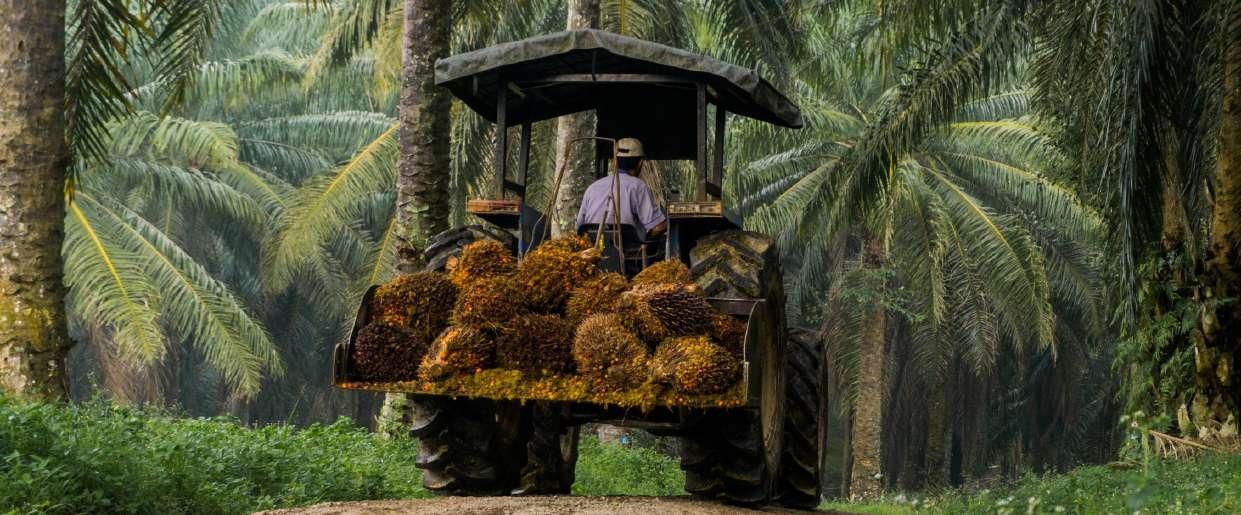
SANDAKAN: Sabah terus menjadi produsen minyak kelapa sawit regional yang signifikan, memberikan mata pencaharian dan kemakmuran bersama dengan semua warga Sabah, kata Malaysian Palm Oil Association (MPOA).
Direktur utamanya Joseph Tek mengatakan bawah tahun lalu Sabah memproduksi 23,3 persen minyak kelapa sawit mentah (crude palm oil / CPO) Malaysia, menghasilkan 4,29 juta ton dari lahannya yang seluas 1,51 juta hektar area perkebunan kelapa sawit. “Namun, ada penurunan hasil panen, tingkat ekstraksi minyak (oil extraction rates / OER) dan tingkat ekstraksi biji (kernel extraction rate / KER), masing-masing sebesar 2,4 persen, 1,5 persen dan 0,9 persen, tahun-ke-tahun. “Terlepas dari tantangantantangan ini, MPOA mengucapkan terima kasih kepada pemerintah Sabah atas dukungan mereka yang terus menerus dan kerjasamanya dengan industri kelapa sawit,” katanya pada RUPS MPOA cabang Sabah di sini hari ini.
Tek mengatakan bahwa industri kelapa sawit global diperkirakan akan menghadapi ketersediaan CPO tahun ini karena beberapa faktor, termasuk potensi peningkatan panen CPO dari negara produsen utama Malaysia dan Indonesia masing-masing kurang dari tiga persen. “Curah hujan tinggi dan banjir di beberapa bagian Malaysia diperkirakan akan mempengaruhi produksi CPO karena gangguan jangka pendek pada operasi pemanenan, logistik dan hasil panen yang lebih buruk. “Selama tiga tahun terakhir, La Nina telah menyebabkan kerusakan yang signifikan pada sistem perakaran kelapa sawit, menyebabkan tandan buah yang lebih kecil, lebih sedikit kandungan minyak dan bentuk buah yang tidak merata.”
Tek menambahkan bahwa meningkatnya jumlah pohon yang terlalu tua dan sangat tinggi di Malaysia juga diperkirakan akan terus membatasi pasokan karena lambatnya penanaman kembali akibat tingginya biaya. “Sebagai catatan positif, pihak berwenang telah memfasilitasi kembalinya lebih banyak tenaga kerja asing, mengurangi kesulitan tenaga kerja di antara banyak pemilik kebun. Keadaan normal diharapkan di antara banyak pemilik kebun pada pertengahan tahun ini.” - Bernama
SANDAKAN: Sabah continues to be a significant regional palm oil producer, providing livelihood and shared prosperity for all Sabahans, said the Malaysian Palm Oil Association (MPOA).
Its chief executive officer Joseph Tek said last year, Sabah produced 23.3 per cent of Malaysia’s crude palm oil (CPO), generating 4.29 million tons from its landbank of 1.51 million hectares of planted oil palm area. “However, there was a decline in crop yield, oil and kernel extraction rates (OER and KER), by 2.4 per cent, 1.5 per cent, and 0.9 per cent respectively, year-on-year. “Despite these challenges, MPOA expressed gratitude to the Sabah government for its continued support and cooperation with the oil palm industry,” he said at the MPOA Sabah branch’s annual general meeting (AGM) here today.
Tek said the global palm oil industry is expected to face tighter CPO availability this year due to several factors, including only a potential marginal increase in CPO output from top producing countries Malaysia and Indonesia by less than three percent, respectively. “Heavy rainfall and floods in parts of Malaysia are expected to impact CPO production due to short-term disruptions to estate harvesting operation, logistics, and poorer fruit-set. “The last three years of La Nina have caused significant damage to oil palm root systems, leading to smaller fruit bunches, lesser oil content, and uneven fruit sets.”
Tek added that the rising number of over-aged and very tall oil palm trees in Malaysia is also expected to continue to constrain supply as replanting has been slow due to high costs. “On a positive note, authorities have facilitated the return of more foreign workers, easing labour woes among many planters. Normalcy is expected among many planters by the middle of this year.” - Bernama
Palm Oil Today Indonesia April - June 2023 www.indopalmoil.com 10 REGIONAL NEWS
















www.indopalmoil.com TW-15 & 20 FFB SCREW PRESS MS-800R EFB SHREDDER HM-7000 HAMMER MILL MB-900R EFB PRESS SPARE PARTS M-6000 FFB CRUSHER M-15 PALM KERNEL PRESS MC-60 BUNCH CRUSHER BOILER "YOUR LEADING ENGINEERING PARTNER IN INDONESIA" HEAD OFFICE MVANCE ENGINEERING SDN.BHD. JA 2531, Kawasan Perindustrian Merlimau, 77300, Merlimau, Melaka, Malaysia Phone : +606 263 3339 Fax : +606 263 3113 Email : mail@m-vance.com INDONESIA BRANCH PT. MVANCE INDO PRATAMA Green Sedayu Bizpark Blok DM 1 No. 57 Jl. Daan Mogot KM. 18 RT. 11 RW. 6 Kalideres Kec. Kalideres Kota Jakarta Barat 11840, Indonesia Phone : +6221 5433 5533 / +6221 5433 3355 Email : id@m-vance.com CONTACT US : www.m-vance.com FOR ENQUIRIES : Email : id@m-vance.com Mobile/Whatsapp : +62811 8955 335 Visit our website :
INDONESIA, MALAYSIA AKAN MENGIRIMKAN UTUSAN KELAPA SAWIT KE UE
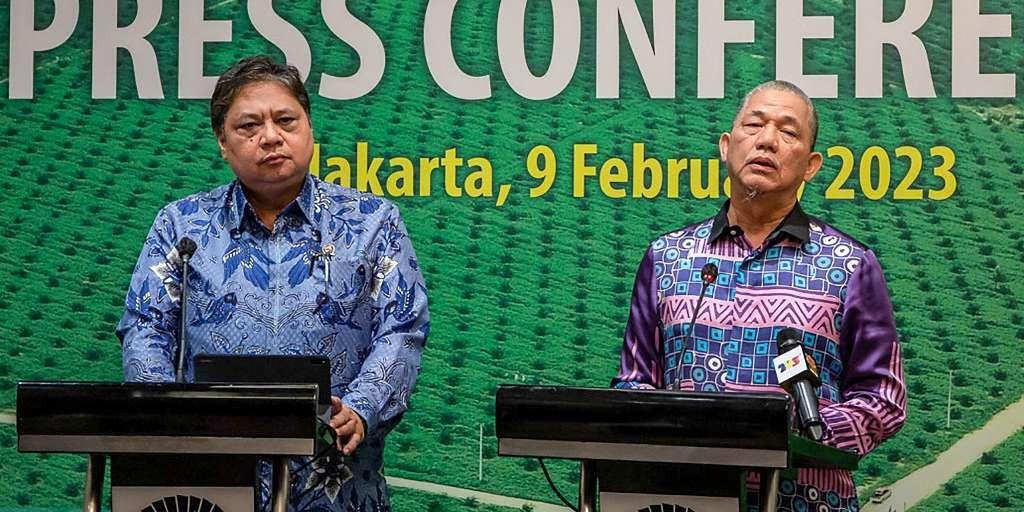
INDONESIA, MALAYSIA WILL SEND THEIR PALM OIL REPRESENTATIVE TO UE
J J
AKARTA – Indonesia dan Malaysia telah sepakat untuk meningkatkan upaya memerangi diskriminasi terhadap kelapa sawit dan melindungi industri dengan mengirimkan utusan ke Uni Eropa, yang telah mengeluarkan kebijakan baru untuk memblokir penjualan minyak kelapa sawit.
Pada pertamuan di Jakarta pada hari Kamis antara Menteri Koordinator Bidang Perekonomian Airlangga Hartarto dan Wakil Perdana Menteri Malaysia dan Menteri Perkebunan Fadillah Yusof, kedua negara sepakat untuk mengirimkan utusan bersama untuk mempresentasikan fakta ilimiah, manfaat ekonomi dan praktik terbaik industri. “Kami telah sepakat untuk melindungi sektor kelapa sawit dengan memperkuat upaya [kami] dan bekerjasama untuk memerangi diskriminasi ini. Sehubungan dengan langkah bersama yang dapat berdampak terhadap industri kelapa sawit, pertemuan kami sepakat untuk mengadakan dialog dengan negara importir utama,” kata Airlangga dalam konferensi pers sesudahnya.
Fadillah, sementara itu, mengatakan bahwa Malaysia dan Indonesia sepakat menjaga lingkungan, termasuk dengan mempraktekkan penebangan kayu berkelanjutan saat membuka lahan untuk perkebunan. “Kami selalu berupaya untuk mematuhi peraturan dalam industri kelapa sawit, tetapi mereka harus adil dan mengerti situasi di kedua negara, di mana kami berusaha membantu petani kecil untuk keluar dari kemiskinan,” katanya, seperti yang dilansir oleh Bernama, kantor berita Malaysia.
Pada bulan lalu, Presiden Joko “Jokowi” Widodo dan Perdana Menteri Anwar Ibrahim yang sedang berkunjung sepakat untuk menjalin kerjasama untuk mengembangkan pasar kelapa sawit dan memerangi diskriminasi terhadap komoditas tersebut. “Kami telah sepakat untuk memperkuat kerjasama [kami] melalui Dewan Negara-negara Produsen Minyak Kelapa Sawit (Council of Palm Oil Producing Countries / CPOPC) untuk meningkatkan pasar minyak kelapa sawit dan memerangi diskriminasi terhadap minyak kelapa sawit,” kata Jokowi dalam konferensi pers gabungan setelah pembicaraan bilateral tersebut.
AKARTA – Indonesia and Malaysia have agreed to step up efforts to fight discrimination against palm oil and protect the industry by sending a mission to the European Union, which has issued a new policy to block the sale of palm oil.
At a meeting in Jakarta on Thursday between Coordinating Economic Affairs Minister Airlangga Hartarto and Malaysia’s Deputy Prime Minister and Plantations Minister Fadillah Yusof, the two countries agreed to send a joint mission to present scientific facts, economic benefits and industry best practices. “We have agreed to protect the palm oil sector by strengthening [our] efforts and cooperation to deal with this discrimination. With regard to this unilateral move that could impact the palm oil industry, our meeting agreed to hold a policy dialog with major importing countries,” Airlangga told a press conference afterward.
Fadillah, meanwhile, said Malaysia and Indonesia were in agreement on protecting the environment, including by practicing sustainable logging when clearing land for plantations. “We always strive to comply with regulations on the palm oil industry, but they must be fair and understand the situation in both countries, where we try to help smallholders come out of poverty,” he said, as quoted by Malaysian state news agency Bernama.
Last month, President Joko “Jokowi” Widodo and visiting Malaysian Prime Minister Anwar Ibrahim agreed to stronger collaboration to develop the palm oil market and combat discrimination against the commodity. “We have agreed to strengthen [our] cooperation through the Council of Palm Oil Producing Countries [CPOPC] to increase the market for palm oil and to fight discrimination against palm oil,” Jokowi said during a joint press briefing after the bilateral talks.
Palm Oil Today Indonesia April - June 2023 www.indopalmoil.com 12 REGIONAL NEWS
Kedua negara sepakat untuk mengirimkan utusan bersama untuk mempresentasikan fakta ilmiah, manfaat ekonomi dan praktik terbaik industri, setelah pertemuan antara pimpinan dari kedua negara. The two countries agreed to send a joint mission to present scientific facts, economic benefits and industry best practices, after a meeting between leaders from both countries.




















OCTOBER 2023 4-6 SANTIKA PREMIERE DYANDRA HOTEL & CONVENTION MEDAN - INDONESIA Brought To You By : Endorsed and Suppor ted By : INDUSTRY NETWORKING LUNCH Technology Seminars International Conference Join the World's Largest Palm Oil Event at the Heart of the Industry! highlights of the event www.palmoilexpo.com +62 21 5088 2917 info@fireworksid.com 9 th INDONESIA INTERNATIONAL PALM OIL CONFERENCE 2023 Incorporating : 2023 13thEdition O cial Lunch Sponsor :
MESIR, MALAYSIA MEMBAHAS PELUANG INVESTASI
MINYAK KELAPA SAWIT
Mesir – Menteri Perdagangan dan Industri Ahmed Samir telah bertemu dengan utusan sebuah perusahaan terbesar Malaysia, yang sedang berkunjung ke Mesir, untuk mendiskusikan peluang investasi minyak kelapa sawit.
Samir mencatat bahwa perusahaan Malaysia dapat diuntungkan dari Perjanjian Perdagangan Bebas Benua Afrika, terutama pembebasan bea cukai. Dia menyoroti minat kementerian untuk memanfaatkan keahlian dan teknologi produksi minyak kelapa sawit Malaysia yang hebat dan memindahkannya ke industri Mesir, sehingga Mesir dapat menjadi pusat untuk produk yang menjanjikan ini dan mengekspornya ke negara tetangga. Dia menjelaskan bahwa kementerian siap memberikan dukungan penuh dengan segala saran bagi perusahaan tersebut agar dapat memulai usahanya di pasar Mesir dan mendapatkan keuntungan dari insentif investasi yang ditawarkan oleh pemerintah Mesir kepada investor asing.
Sementara itu, utusan tersebut menjelaskan bahwa perusahaan tersebut merupakan salah satu perusahaan terbesar Malaysia dalam produksi dan penyulingan minyak kelapa sawit di dalam dan luar Malaysia.
Perusahaan memiliki pabrik dan penyulingan di beberapa negara di Asia, Afrika dan Eropa, serta perusahaan tersebut juga memiliki sekelompok perusahaan yang mencakup berbagai kegiatan investasi di beragam sektor, termasuk logistik, mobil dan layanan kesehatan.
Utusan tersebut menyatakan minat yang besar perusahaannya terhadap pasar Mesir karena itu merupakan salah satu destinasi investasi yang paling penting di Timur Tengah dan Afrika. Utusan perusahaan mengunjungi Zona Ekonomi Terusan Suez di luar pertemuan yang dengan Federasi Industri Mesir, Otoritas Pengembangan Industri, Majelis Industri Pangan dan Perusahaan Induk Industri Pangen serta sejumlah perusahaan Mesir yang beroperasi di sektor ini untuk membahas kemungkinan peluang kerjasama.
EGYPT, MALAYSIA TO DISCUSS INVESTMENT OPPORTUNITIES IN PALM OIL
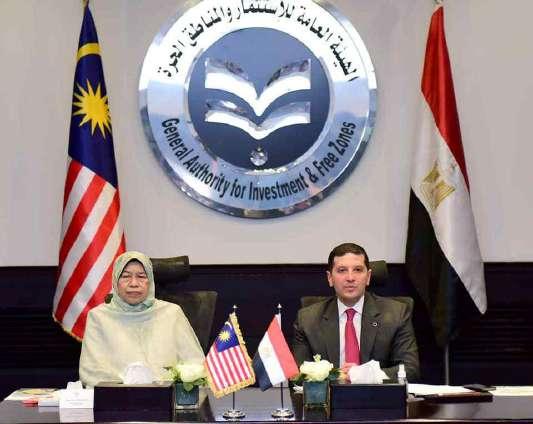
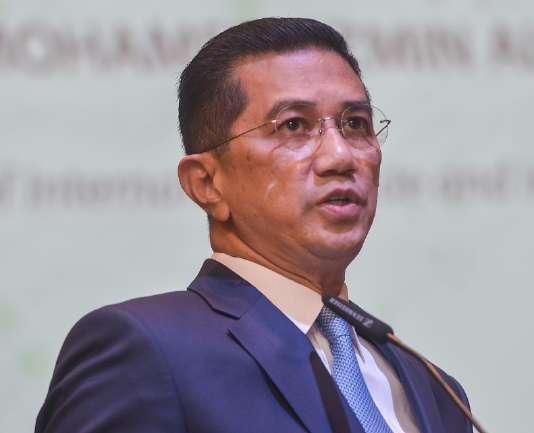
Egypt - Minister of Trade and Industry Ahmed Samir has met with a delegation of one of the largest Malaysian companies, which is currently visiting Egypt, to discuss investment opportunities in the field of palm oil.
Samir noted that the Malaysian company could benefit from the trade advantages of the African Continental Free Trade Agreement, foremost of which is the exemption from custom duties. He highlighted the ministry’s keenness to benefit from the great Malaysian expertise and technologies in palm oil production and its transfer to the Egyptian industry, so that Egypt would be a hub for manufacturing this promising product and exporting it to neighbouring markets. He elaborated that the ministry is fully prepared to provide all means of support for the company to start its business in the Egyptian market and benefit from investment incentives offered by the Egyptian government to foreign investors.
For its part, the delegation explained that the company is one of the largest Malaysian companies in the production and refining of palm oil inside and outside Malaysia.
The company owns factories and refineries in many countries of the world in Asia, Africa and Europe, and the company also owns a group of companies that include various investment activities in various sectors, including logistics, cars and health services.
The delegation expressed the great interest that the company attaches to the Egyptian market as one of the most important investment destinations in the Middle East and Africa. The company’s delegation visited Suez Canal Economic Zone in addition to holding meetings with the Federation of Egyptian Industries, Industrial Development Authority, the Chamber of Food Industries and the Holding Company for Food Industries and a number of Egyptian companies operating in this sector to discuss possible cooperation opportunities.
Palm Oil Today Indonesia April - June 2023 www.indopalmoil.com 14 WORLD NEWS
Perusahaan Malaysia dapat diuntungkan dari Perjanjian Perdagangan Bebas Benua Afrika, terutama pembebasan bea cukai: menteri
The Malaysian company could benefit from the trade advantages of the African Continental Free Trade Agreement, foremost of which is the exemption from custom duties: minister
Lebih dari 80 petani kelapa sawit dan lainnya diuntungkan dari pembangunan kapasitas

RSPO di Edo
Fatai menunjukkan bahwa pemangku kepentingan termasuk komunitas lokal, organisasi masyarakat sipil, petani kecil, lembaga pemerintah, media dan perusahaan kelapa sawit. Dia juga menambahkan bahwa Progam Penjangkauan dan Interaksi Komunitas akan diselenggarakan dalam enam area penghasil kelapa sawit di wilayah pemerintah daerah negara bagian. Dia membuat daftar enam wilayah pemerintah lokal meliputi Ikpoba Okha, Ovia Tenggara, Ovia Timur Laut, Ovia Barat Daya, Uhunmwonde, Owan Barat dan Orhionmwon.
Sebagai bagian dari rencana untuk meningkatkan produski kelapa sawit di Nigeria, Roundtable on Sustainable Palm Oil (RSPO) telah menandai program peningkatan kapasitas untuk empat komunitas penghasil kelapa sawit di Wilayah Pemerintahan Barat Daya Ovia di Negara Bagian Edo. Foremost Development Services Limited, Perusahaan Penengah (Intermediary Organization / IMO) untuk RSPO telah memulai pembangunan kapasitas.
Fatai Afolabi, Konsultan Pengelola dan Direktur Utama Foremost Development Services Limited mengatakan bahwa Program Penjangkauan dan Interaksi Komunitas (Community Outreach and Engagement Programme / COEP) adalah untuk berinteraksi dengan pemangku kepentingan di seluruh lapisan masyarakat di dalam negara-negara penghasil minyak kelapa sawit di Asia, Afrika dan Amerika Latin.
Afolabi mengatakan bahwa lebih dari 80 petani kelapa sawit kecil, tua, muda, wanita, dan organisas berbasis komunitas (community-based organisations / CBO) diberikan pelatihan dasar prinsip dan kriteria RSPO. Dia menambahkan bahwa program tersebut, yang digunakan untuk memastikan lapangan bermain yang adil bagi semua pemangku kepentingan di industri minyak kelapa sawit, berfokus pada tiga tujuan dampak, yaitu Kemakmuran, Manusia dan Planet. Dia mengatakan pesertanya diambil dari komunitas Madagbayo, Gbelebu, Udo dan Maroghionba (AT&P) di wilayah pemerintahan Barat Daya Ovia. “Dengan pelatihan RSPO ini ingin mengedukasi komunitas dan pemangku kepentingan lain di rantai pasokan minyak kelapa sawit terkait standar yang harus diadopsi untuk produksi minyak kelapa sawit yang berkelanjutan. “ini juga meningkatkan tingkat kesadaran masyarakat atas kewajiban masyarakat dan perusahaan yang memproduksi minyak kelapa sawit berkelanjutan tentang hal-hal yang berkaitan dengan hak mereka, mata pencaharian, pengelolaan sosial dan lingkungan, perlindungan masyarakat dan karyawan. “Dalam semua ini, tujuan keseluruhan RSPO adalah untuk membuat minyak kelapa sawit berkelanjutan sebagai norma,” katanya. Dia menjelaskan bahwa pemilihan Negara Bagian Edo untuk COEP dikarekan ia merupakan produsen utama minyak kelapa sawit berkelanjutan di Nigeria.
Dia menambahkan juga bahwa Pemerintah Negara Bagian Edo juga telah terus menerus memproduksi minyak kelapa sawit berkelanjutan melalui aplikasi standar RSPO. Dia mengatakan bahwa pemerintah negara bagian juga telah mewajibkan investor melalui Program Kelapa Sawit Negara Bagian Edo (Edo State Oil Palm Programme / ESOPP) untuk melakukan hal yang sama untuk mencapai sektor minyak kelapa sawit yang berkelanjutan. Dia melanjutkan bahwa pembangunan kapasitas Program Penjangkauan dan Interaksi Komunitas RSPO akan berlangsung selama 14 bulan dan akan melibatkan pemangku kepentingan.
Dia menyatakan antara 90 hingga 120 petani dan pemangku kepentingan akan diuntungkan dari pembangunan kapasitas di masing-masing wilayah pemerintah lokal.
Dia mengatakan bahwa RSPO merupakan inisiatif banyak pemangku kepentingan atas minyak kelapa sawit berkelanjutan dan organisasi nirlaba dengan keanggotaan internasional yang mempersatukan pemangku kepentingan dari sektor-sektor utama dan industri minyak kelapa sawit.
Harus diingat bawah Roundtable on Sustainable Palm Oil (RSPO) pada tanggal 25 Oktober 2022, ketika peluncuran Program Penjangkauan dan Interaksi Komunitas di Negara Bagian Edo mengatakan bahwa mereka menyatakan komitmen sejumlah $300.000 untuk mempromosikan produksi minyak kelapa sawit berkelanjutan di Negara Bagian Edo.
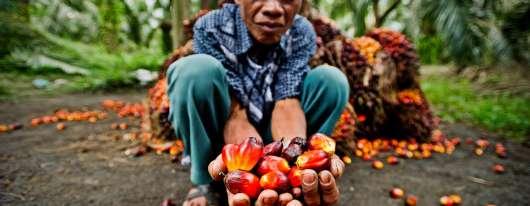
www.indopalmoil.com Palm Oil Today Indonesia April - June 2023 15 WORLD NEWS
Over 80 palm oil farmers and others had the benefit from RSPO capacity building in Edo
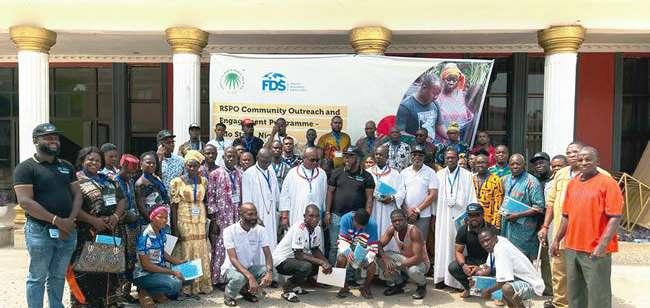
As part of plans to boost oil palm production in Nigeria, the Roundtable on Sustainable Palm Oil (RSPO) has flagged off a capacity building programme for four oil palm producing communities in the Ovia South-West Local Government Area in Edo State. The Foremost Development Services Limited, Intermediary Organization (IMO) for the RSPO flagged off the capacity building.
Fatai Afolabi, the Managing Consultant and Chief Executive Officer of Foremost Development Services Limited said the Community Outreach and Engagement Programme (COEP) was to engage stakeholders at all levels of society within palm oil producing countries in Asia, Africa and Latin America.
Afolabi said that over 80 smallholder oil palm farmers, elders, youths, women and community-based organisations (CBO) were trained on the principles and criteria of RSPO. He added that the programme, which was to ensure an equitable playing field for all stakeholders in the palm oil industry, focuses on the three impact goals of Prosperity, People and Planet. He said the participants were drawn from Madagbayo, Gbelebu, Udo and Maroghionba (AT&P) communities in the Ovia South-West local government area. “With this training RSPO wishes to educate the communities and other stakeholders in the palm oil supply chain on the standards to adopt for sustainable palm oil production. “It also wishes to raise the level of awareness of the people on the obligations of the communities and companies producing sustainable palm oil on matters relating to their rights, livelihoods, social and environmental management, protection of communities and employees. “In all of these, the overall aim of RSPO is to make sustainable palm oil the norm”, he said. He explained that the choice of Edo State for the COEP was as a result of its being the major producers of sustainable palm oil in Nigeria.
He added that the Edo State Government has also subscribed to the production of sustainable palm oil through the application of the RSPO standards. He said the state government has also mandated investors through the Edo State Oil Palm Programme (ESOPP) to do the same in order to achieve a palm oil sector that is sustainable. He further said the capacity building on the RSPO Community Outreach and Engagement Programme will run for 14 months and will involve stakeholders.
Fatai pointed out that the stakeholders include local communities, civil society organizations, smallholder farmers, government agencies, media and oil palm companies. He also added that the Community Outreach and Engagement Programme will be organized in six oil palm producing local government areas in the state. He listed the six local government areas to include Ikpoba Okha, Ovia South-West, Ovia North-East, Ovia South-West, Uhunmwonde, Owan West and Orhionmwon.
He stated that between 90 and 120 farmers and other stakeholders will benefit from the capacity building in each of the local government areas.
He said RSPO is a global multi-stakeholder initiative on sustainable palm oil and not-for-profit international membership organization that unites stakeholders from key sectors of the palm oil industry.
It should be recalled that the Roundtable on Sustainable Palm Oil (RSPO) had on October 25, 2022 during the official launch of the Community Outreach and Engagement Programme in Edo State said it committed the sum of $300,000 into the promotion of sustainable palm oil production in Edo State.
Palm Oil Today Indonesia April - June 2023 www.indopalmoil.com 16 WORLD NEWS
C M Y CM MY CY CMY K








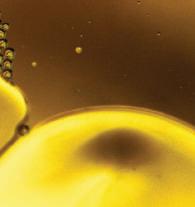

















INDONESIA SERAHKAN KETUA CPOPC KE MALAYSIA
Jakarta - Indonesia telah secara resmi menyerahkan kepemimpinan Dewan Negara Produsen Minyak Kelapa Sawit (Council of Palm Oil Producing Countries / CPOPC) ke Malaysia untuk tahun 2023. Acara penyerahan tersebut diadakan di Hotel Mandarin Oriental, Jakarta pada hari Kamis tanggal 9 Februari. “Pada kesempatan ini, kami secara resmi menyerahkan ketua CPOPC kepada yang terhormat Dato’ Sri Fadillah sebagai ketua kepresidenan Malaysia [untuk CPOC] untuk tahun 2023,” kata Menteri Koordinasi Bidang Perekonomian Airlangga Hartarto.
Airlangga dan Fadillah Yusof, Menteri Komoditas Malaysia, juga menyetujui keterlibatan negara-negara pengekspor utama melalui dialog kebijakan dan strategi penerapan sertifikasi Indonesia Sustainable Palm Oil (ISPO) dan Malaysian Sustainable Palm Oil (MSPO) di pasar global. “Rapat juga membahas strategi peluasan keanggotaan CPOPC yang disepakati, termasuk persetujuan untuk memasukkan Honduras sebagai anggota ketiga CPOPC dalam waktu dekat,” kata Airlangga. Honduras akan menjadi negara ketiga dan negara Amerika Latin pertama yang akan bergabung dengan CPOPC.
MISI BERSAMA UNTUK MELAWAN DISKRIMINASI TERHADAP INDUSTRI MINYAK KELAPA SAWIT
Airlangga mengatakan bahwa Indonesia dan Malaysia juga sepakat untuk berkomunikasi dan melawan konsekuensi dari peraturan deforestasi Uni Eropa (UE) terhadap industri kelapa sawit kedua negara tersebut.
Pada bulan Desember, UE menerapkan peraturan baru yang melarang kopi, kelapa sawit, kacang kedelai dan tanaman lain yang mereka klaim telah mengakibatkan deforestasi untuk masuk ke pasarnya. Indonesia dan Malaysia sebagai produsen kelapa sawit terbesr di dunia, menilai aturan tersebut diskriminatif.
Airlangga menambahkan bahwa utusan bersama selesai dari UE, mereka akan melakukan kunjungan ke India untuk melihat potensi peluang untuk mempromosikan ISPO dan MSPO, yang telah diakui India.
Indonesia hands-over the Chairman of CPOPC to Malaysia
Jakarta - Indonesia has officially handed over the leadership of the Council of Palm Oil Producing Countries (CPOPC) to Malaysia for 2023. The hand-over ceremony took place at the Hotel Mandarin Oriental in Jakarta on Thursday, February 9. “On this occasion, we officially hand over the chair of the CPOPC to the honorable Dato’ Sri Fadillah as head of the Malaysian presidency [for CPOC] for the year 2023,” Indonesia’s Coordinating Minister for Economic Affairs Airlangga Hartarto said.
Airlangga and Fadillah Yusof, Malaysia’s Commodities Minister, also agreed on the involvement of major exporting countries through policy dialogue and strategies for implementing Indonesia Sustainable Palm Oil (ISPO) and Malaysian Sustainable Palm Oil (MSPO) certifications in the global market. “The meeting also discussed CPOPC’s membership expansion strategy, which was agreed to include Honduras as the third member of CPOPC in the near future,” said Airlangga. Honduras will become the third country and the first Latin American nation country to join CPOPC.
JOINT MISSION TO COUNTER DISCRIMINATION AGAINST THE PALM OIL INDUSTRY
Airlangga said that Indonesia and Malaysia have also agreed to communicate and counter unwanted consequences from the European Union’s (EU) rule on deforestation against the two nations’ palm oil industry.

In December, the EU imposed a new law preventing coffee, palm oil, soybeans and other crops that they claim have resulted in deforestation from entering its market. Indonesia and Malaysia, as the world’s largest palm oil producers, deem the regulation as discriminatory.
Airlangga added that after the joint mission to the EU, they will make a visit to India to check out the potential for opportunities as well as promote ISPO and MSPO, which India has recognized.
Palm Oil Today Indonesia April - June 2023 www.indopalmoil.com 18 WORLD NEWS
PERMINTAAN MINYAK SAWIT AKAN NAIK TAHUN 2023 MENJADI 20 JUTA TON
PALM OIL DEMAND TO RISE IN 2023 TO 20 MILLION TONS
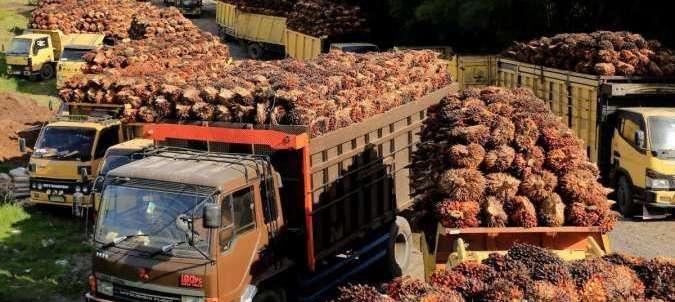
KUALA LUMPUR: Permintaan minyak kelapa sawit Malaysia diperkirakan akan meningkat menjadi 19,85 juta ton tahun ini dari 19,01 ton pada tahun 2022 karena ekspor akan tumbuh menjadi 16,44 juta ton dari 15,73 ton sebelumnya.
Permintaan lainnya diperkirakan akan berasal dari dalam negeri (2,98 juta ton) dan penggunaan produksi bahan bakar nabati (440.000 ton), kata presiden Asosiasi Produsen Minyak Nabati India, Sudhakar Desai.
Permintaan ekspor yang lebih kuat sebagian besar dari India, dan pergeseran permintaan minyak kelapa sawit dari Indonesia ke Malaysia karena pembatasan ekspor negara tersebut akan membantu meningkatkan permintaan dan menghabiskan stok dari Malaysia.
Stok akhir tahun 2023 Malaysia kemungkinan berada di 4,33 juta ton, lebih tinggi daripada 4,22 juta ton tahun lalu, sementara keseluruhan produksi diperkirakan akan tumbuh moderat sekitar 2,6% menjadi 18,95 juta ton tahun ini. “Ini bukan pertumbuhan yang besar. Produksi telah lama stagnan di Malaysia,” katanya dalam webinar kelapa sawit UOB Kay Hian kemarin. Gabungan produksi Malaysia-Indonesia diperkirakan akan mencapat 68,72 juta ton pada tahun 2023, dengan ekspor sebesar 44,63 juta ton. Indonesia akan memasok 57,09 juta ton minyak kelapa sawit ke dalam total nilai produksi. Sudhakar mengatakan bahwa India, konsumen terbesar kedua minyak kelapa sawit, diperkirakan akan mengimpor 14,37 juta ton minyak nabati di tahun 2022 dan 2023, di mana 9,3 juta ton merupakan minyak kelapa sawit, 3,01 juta ton minyak kedelai, dan 2,01 juta ton minyak bunga matahari. ‘Seperti negara lainnya, India perlu menambah stok ketika terjadi penurunan harga yang signifikan. “Bagi saya, sepertinya permintaan minyak nabatu telah kembali,” katanya.
Ia menambahkan bahwa harga minyak kelapa sawit telah menurun sejak April 2022 hingga berada pada tingkat saat ini di atas RM 4.200 per ton. DIa juga menambahkan harga minyak kedelai telah turun 37% dan minyak bunga matahari telah turun 43%.
Dalam skala global, produksi minyak kelapa sawit akan mencapat 79,22 juta ton pada tahun 2022 dan 2023, kenaikan 10% dari tahun 2021 dan 2022. Sebaliknya, permintaan global minyak kedelai turun 0,3 persen menjadi 60,19 juta ton. - Bernama
KUALA LUMPUR: Demand for Malaysia’s palm oil is forecast to notch higher to 19.85 million tons this year from 19.01 million tons in 2022 as exports are set to grow to 16.44 million tons from 15.73 million tons previously.
The remaining demand is expected to come from domestic (2.98 million tons) and usage for biodiesel production (440,000 tons), said Indian Vegetable Oil Producers’ Association president Sudhakar Desai.
Stronger export demand mostly from India, and a shift in palm oil demand from Indonesia to Malaysia due to the country’s export restrictions will help raise demand and clear some stocks from Malaysia.
Malaysia’s end-2023 stock is likely to be at 4.33 million tons, higher than last year’s 4.22 million tons, while overall production is expected to grow moderately by 2.6% to 18.95 million tons this year. ‘’It’s not a big growth. Production has been stagnant for Malaysia,’’ he said during UOB Kay Hian’s palm oil webinar yesterday. Combined Malaysia-Indonesia production is expected to reach 68.72 million tons in 2023, with exports at 44.63 million tons. Indonesia will supply 57.09 million tons of palm oil to the total production figures. Sudhakar said India, the second-largest palm oil consumer, is projected to import 14.37 million tons of vegetable oils in 2022 and 2023, of which 9.3 million tons are palm oil, 3.01 million tons are soybean oil, and 2.01 million tons are sunflower oil. ‘’Like other countries, India has a need to pick up stocks when there is a steep drop in prices. “To me, it definitely looks like demand for vegetable oils has returned,’’ he said.
He added that palm oil prices have dropped from their April 2022 peak to hover at the current level of over RM4,200 per tonne. He added that soybean oil price has dipped 37% and sunflower oil price has shrunk by 43%.
On a global scale, palm oil production is likely to reach 79.22 million in 2022 and 2023, a 10% uptrend from 2021 and /2022. In contrast, global demand for soybean is lower by 0.3 per cent to 60.19 million tons. — Bernama
www.indopalmoil.com Palm Oil Today Indonesia April - June 2023 19 COVER STORY
RAJA KELAPA SAWIT INDONESIA DARMADI
DIJATUHKAN HUKUMAN PENJARA 15 TAHUN ATAS DAKWAAN KORUPSI
Medan, Indonesia – Surya Darmadi, salah satu raja kelapa sawit Indonesia, telah dijatuhkan hukuman penjara selama 15 tahun dan diperintahkan untuk membayar denda kepada negara senilai $2,6 miliar atas perannya dalam skema korupsi yang mengakibatkan deforestasi ribuan hektar hutan lindung di Sumatera.
Darmadi didakwa menyuap beberapa pejabat Indonesia di provinsi Riau sebuah pusat produksi minyak kelapa sawit untuk mengizinkannya mengkonversi lebih dari 36.240 hektar (90,000 aker) hutan menjadi perkebunan kelapa sawit di bawah anak perusahaannya, PT Duta Palma. Penyidik yang menyelidiki keuangan perusahaan sebelum persidangan memperkirakan perkebunan tersebut telah menghasilkan $40 juta per bulan bagi PT Duta Palma, dan menuduh Darmadi telah melakukan pencucian uang dan penggelapan pajak sejak tahun 2002.
Minyak kelapa sawit, yang digunakan dalam berbagai produk, mulai dari pangan dan kosmetik hingga bahan bakar nabati, merupakan bisnis yang sangat menguntungkan, dan Indonesia merupakan produsen terbesar sekaligus eksportir produk kelapa sawit. Indonesia mengekspor lebih dari 30 juta ton produk kelapa sawit pada tahun 2022, menghasilkan pendapatan lebih dari $39 miliar, menurut Asosiasi Minyak Kelapa Sawit Indonesia.
Riko Kurniawan, direktur Paradigma, sebuah lembaga swadaya masyarakat yang berbasis di Sumatera yang berfokus pada masalah keadilan sosial dan lingkungan, mengatakan hukuman Darmadi adalah titik balik karena perusahaan kelapa sawit biasanya lolos dari tindakan hukum karena korupsi yang meluas yang memungkinkan mereka untuk menyuap pejabat. “Kasus Darmadi luar biasa karena kami jarang melihat para pelaku di industri kelapa sawit dimintai pertanggungjawaban,” Kata Kurniawan kepada Al Jazeera. “Ini benar -benar belum terjadi sebelumnya.” “Kali ini, kejaksaan sangat pintar dalam menyusun kasus dengan berbagai lapisan dakwaan termasuk kosupsi dan pencucian uang sehingga Darmadi akan menghadapi kekuatan hukum sepenuhnya,” tambahnya.
Jaksa penuntut dalam kasus ini menuduh Darmadi telah merugikan negara sebesar 73 miliar Rupiah ($4,8 miliar) melalui korupsinya menjadikannya pelaku skema korupsi terbesar dalam sejarah Indonesia.
Namun, majelis hukum yang dipimpin oleh Hakim Fahzal Hendri menyebutkan usia Darmadi dan penyakit jantung yang
dideritanya sebagai alasan untuk tidak menjatuhkan hukuman penjara seumur hidup kepada pria berumur 71 tahun tersebut, dengan alasan hukuman 15 tahun tidak boleh dianggap kurang substansi. “Korupsi adalah kejahatan yang luar biasa, dan kita perlu memberi contoh kepada yang lain,” kata Hendri, “Konon, ada faktor kemanusiaan di sini. Tidak ada trik, hanya alasan kemanusiaan untuk hukuman itu.” Mengetahui bahwa Darmadi bersalah atas korupsi dan pencucian uang, Hakim Hendri memerintahkan raja kelapa sawit tersebut untuk membayar 2,2 triliun Rupiah ($144 juta) yang seharusnya dia bayarkan kepada pemerintah dan 39 triliun Rupiah ($2,45 miliar) lainnya sebagai kerugian negara. Indonesia merupakan rumah bagi kawasan hutan tropis terbesar ketiga di dunia dan hingga 15 persen dari semua tumbuhan, mamalia dan unggas yang diketahui di planet ini, menurut Greenpeace.
Dalam sebuah laporan tahun 2021, Greenpeace Indonesia mengatakan bahwa perkebunan kelapa sawit merupakan “penyebab deforestasi terbesar di Indonesia selama dua dekade terakhir”. Global Forest Watch menemukan bahwa Indonesia telah kehilangan 230.000 hektar (568.300 aker) hutan primernya pada tahun 2021. Darmadi pertama kali ditetapkan sebagai tersangka pada tahun 2014 ketika Komisi Pemberantasan Korupsi (KPK) menuduhnya telah menyuap mantan Gubernur Provinsi Riau, Annas Maamun, dengan pembayaran $200.000 untuk mengubah peraturan yang mempermudah PT Duta Palma untuk beroperasi.

Pada tahun 2022, dia kembali ditetapkan sebagai tersangka atas dugaan pembayaran kepada mantan Bupati Indragiri Hulu di Provinsi Riau, Raja Thamsir Rachman, yang mengeluarkan izin operasi lima anak perusahaan PT Duta Palma. Darmadi melarikan diri dari Indonesia pada tahun 2014 dan menghindari upaya pihak berwenang untuk mengekstradisi dia sampai dia kembali ke Indonesia atas kemauannya sendiri tahun lalu, yang berujung pada penangkapannya.
Pada tahun 2018, Forbes menempatkan kekayaan bersih Darmadi sebesar 20 triliun Rupiah ($1,3 miliar). Selain hukuman 15 tahun penjara dan perintah restitusi, Darmadi didenda $65,000 oleh pengadilan. Jika ia tidak mampu membayar $2,6 miliar sesuai permintaan dalam waktu satu bulan, akan digantikan dengan tambahan masa penjara lima tahun, pengadilan memutuskan. “Kami akan banding , kami akan banding, Yang Mulia, terima kasih telah memberi [saya] 15 tahun,” kata Darmadi usai vonis.
www.indopalmoil.com 20 COVER STORY
INDONESIA’S PALM OIL TYCOON DARMADI GETS 15 YEARS OF SENTENCE FOR CORRUPTION
Medan, Indonesia – Surya Darmadi, one of Indonesia’s biggest palm oil tycoons, has been sentenced to 15 years in prison and ordered to repay the state the equivalent of $2.6bn for his role in a corruption scheme that caused the deforestation of thousands of hectares of protected land in Sumatra.
Darmadi was charged with bribing several Indonesian officials in Riau Province a major centre for palm oil production to allow him to convert more than 36,420 hectares (90,000 acres) of forest into oil palm estates under subsidiaries of his company, PT Duta Palma. Investigators who delved into the company’s finances before the trial alleged that the estates earned PT Duta Palma about $40m per month, and accused Darmadi of committing money laundering and tax evasion from 2002 onwards.
Palm oil, used in countless products from food and cosmetics to biofuel, is a highly lucrative business and Indonesia is the world’s largest producer and exporter of palm oil products. Indonesia exported in excess of 30 million tons of palm oil products in 2022, generating more than $39bn in revenue, according to the Indonesian Palm Oil Association.
Riko Kurniawan, the director of Paradigma, a Sumatra-based nongovernmental organisation focused on social justice and environmental issues, said Darmadi’s sentencing was a watershed as palm oil companies typically escaped legal action due to widespread corruption that has allowed them to bribe officials. “Darmadi’s case is exceptional because we rarely see those in the palm oil industry held to account,” Kurniawan told Al Jazeera. “This is truly unprecedented.” “This time, the prosecution was very clever in putting together a case with different layers of charges including corruption and money laundering so that Darmadi would face the full force of the law,” he added.
The prosecution in the case had accused Darmadi of inflicting state losses of 73 trillion Indonesian rupiahs ($4.8bn) through his corruption making him the perpetrator of the biggest corruption scheme in Indonesia’s history.
However, the panel of judges led by Judge Fahzal Hendri cited Darmadi’s age and ongoing heart problems as reasons not to hand the 71-year-old a life term as requested, arguing that the
15-year sentence should not be viewed as lacking substance. “Corruption is an extraordinary crime, and we need to set an example for others,” Hendri said. “That said, there are humanitarian factors here. There are no tricks, just humanitarian reasons for the sentence.” Finding Darmadi guilty of corruption and money laundering, Judge Hendri ordered the tycoon to repay 2.2 trillion rupiahs ($144m) that he previously owed the government and a further 39 trillion rupiahs ($2.5bn) in state losses. Indonesia is home to the third-largest area of tropical forests in the world and up to 15 percent of all known plants, mammals and birds on the planet, according to Greenpeace.
In a 2021 report, Greenpeace Indonesia said that oil palm plantations had been the “largest single cause of deforestation in Indonesia over the last two decades”. Global Forest Watch found that Indonesia lost 230,000 hectares (568,300 acres) of its primary forest in 2021. Darmadi was first named as a suspect in 2014 when Indonesia’s Corruption Eradication Commission accused him of having bribed the former governor of Riau Province, Annas Maamun, with a $200,000 payment to amend forestry regulations to make it easier for PT Duta Palma to operate.
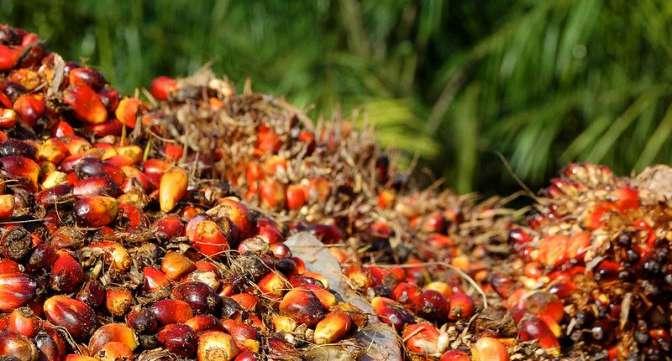
In 2022, he was again named as a suspect over alleged payments to the former head of Indragiri Hulu District in Riau Province, Raja Thamsir Rachman, who issued operating permits for five of PT Duta Palma’s subsidiary companies. Darmadi fled Indonesia in 2014 and evaded authorities’ attempts to extradite him until he returned to the country of his own accord last year, resulting in his arrest.
In 2018, Forbes put Darmadi’s net worth at 20 trillion rupiahs ($1.3bn). In addition to the 15-year prison term and restitution order, Darmadi was fined $65,000 by the court. If he is unable to pay the requested $2.6bn within a month of final sentencing, it will be replaced with an additional five years of prison time, the court ruled. “We will appeal, we will appeal, your Honour. Thank you, your Honour, for giving [me] 15 years,” Darmadi said following the sentencing.
www.indopalmoil.com 21 COVER STORY


































www.indopalmoil.com




























Kelapa sawit Indonesia di Titik Kritis: Berkembang atau
menurun?
Terlepas dari ketidakpastian kebijakan selama dua tahun terakhir dan meningkatknya kampanye hitam oleh Uni Eropa serta LSM ramah lingkungan, industri kelapa sawit telah membuktikan ketahanannya.
JAKARTA – Dibayangi oleh kebijakan antipasar yang lebih keras untuk menstabilkan harga minyak makan pada tingkat yang ditetapkan oleh pemerintah dan melemahnya pasar kelapa sawit, Gabungan Pengusaha Kelapa Sawit Indonesia (GAPKI) akan menyelenggarakan konferensi nasionalnya, yang diadakan setiap lima tahun sekali, di Bali pada tanggal 8-10 Maret.
Sebagai perwakilan dari industri hulu kelapa sawit, GAPKI akan membahasa prospek, isu utama dan strategi upaya beberapa pemangku kepentingan untuk mengatasi tantangan yang dihadapi industri. Tanggapan yang tepat waktu dan tepat oleh organisasi dalam melibatkan pemerintah dan pemangku kepentingan utama lainnya untuk mengatasi setiap ancaman akan memastikan kelapa sawit dapat berkembang secara berkelanjutan. Sebaliknya, kegagalan untuk bertindak atau diam diri terhadap isu-isu internal dan eksternal yang berkembang akan menyebabkan masa depan yang suram bagi industri kelapa sawit, seperti apa yang telah terjadi dalam kegagalan komoditas lainnya, seperti kelapa dan karet, yang menikmati pasar dan pertumbuhan yang kuat pada tahun 1960-an hingga 1970-an, tetapi bankrut pada tahun 1980-an. Terlepas dari ketidakpastian kebijakan selama dua tahun terakhir dan meningkatnya kampanye hitam oleh Uni Eropa serta LSM ramah lingkungan, industri kelapa sawit telah membuktikan ketahanannya.
Perkembangan perkebunan kelapa sawit yang pesat dengan perkiraan total luas lebih dari 16,5 juta hektar pada tahun 2022 dan produksi tahunan lebih dari 50 juta ton minyak telah menjadikan industri ini penghasil devisa terbesar kedua setelah batu bara. Sekitar dua pertiga dari total hasil diekspor dalam bentuk minyak sawit mentah dan turunannya. Namun yang lebih penting bagi perekonomian adalah sekitar 40 persen dari total area perkebunan dimiliki oleh sekitar 3 juta petani kecil, faktor yang membuat perannya sangat penting dalam memerangi kemiskinan di pedesaan.
Di antara tantangan berkelanjutan yang dihadapi industri untuk dekade berikutnya adalah persepsi internasional yang negatif, terutama di Uni Eropa, sebagai salah satu pendorong utama deforestasi, yang telah mendorong banyak negara maju untuk meluncurkan kampanye menolak komoditas tersebut melalui kebijakan perlindungan perdagangan. Undang-undang paling menonjol yang dianggap sebagai kebijakan pelindung perdagangan atas nama mitigasi perubahan iklum adalah undang-undang deforestasi UE. Tentu saja, isu yang paling hangat dan diperdebatkan selama konferensi adalah langkah-langkah antipasar yang dikeluarkan oleh pemerintah pada bulan Januari dalam upaya bersama lainnya untuk menstabilkan harga minyak goreng kemasan pada tingkat yang ditetapkan pemerintah.
Pemerintah gagal memetik pelajaran dari kegagalan delapan kebijakan distorsi pasar yang dikeluarkan selama puncak ledakan komoditas pada paruh pertama tahun 2022 untuk menjinakkan harga minyak goreng yang melonjak. Pemerintah tampaknya tidak menyadari kerusakan yang diakibatkan oleh serangkaian tindakan
yang salah perhitungan, yang telah memperburuk hubungannya dengan perusahaan kelapa sawit dan menaburkan rasa saling tidak percaya di antara kedua pihak. Pemerintah masih cenderung menyalahkan perusahaan karena tidak mendukung langkah-langkah stabilisasi harga, sementara kesalahan utama harus ditujukan pada kapasitas lembagaannya dalam menerapkan langkah-langkah yang tidak menentu.
Perusahaan kelapa sawit setuju bahwa intervensi pasar pemerintah sangat penting untuk melindungi konsumen dari kenaikan harga minyak goreng sebagai dampak inflasi yang disebabkan oleh lonjakan harga minyak nabati global. Kesalahan masa lalu menunjukkan bahwa penetapan kebijakan pasar tanpa konsultasi yang berarti sebelumnya dengan pelaku pasar dan produsen komoditas, serta tanpa penilaian yang serius terhadap kapasitas kelembagaan untuk melaksanakan kebijakan, rentan terhadap celah dan pasti akan gagal. Karenanya konferensi nasional seharusnya menjadi forum yang baik untuk merekomendasikan kebijakan yang ramah bisnis untuk membantu menstabilkan minyak goreng sebagai makanan pokok. Fakta dasarnya adalah volatilitas harga merupakan salah satu karakteristik utama pasar komoditas internasional. Namun sebagai sumber makanan dan energi utama, pemerintah harus memiliki mekanisme stabilisasi harga untuk mengatasi volatilitas tersebut. Tetapi langkah-langkah distorsi pasar tidak akan pernah efektif dalam menjaga stabilitas harga karena pita merah birokrasi yang dibutuhkan untuk mengelola kebijakan antipasar tersebut mengingat kapasitas lembaga pemerintah yang tidak memadai. Misalnya, kebijakan kewajiban pasar domestik (domestic market obligation / DMO) tidak akan berjalan lancar tanpa satu lembaga negara yang bertanggung jawab penuh mengelola logistik dan distribusi serta bertindak sebagai stabilisator harga. Isu penting lainnya yang perlu dibahas adalah rincian teknis penegakan Peraturan Pemerintah No. 26/2021 yang dikeluarkan pada bulan April 2021, yang mewajibkan perusahaan kelapa sawit untuk bertindak sebagai agen pembangunan bagi petani kecil di sekitar konsesi mereka, memberdayakan petani dengan memberikan bantuan dan layanan penyluhan melalui kemitraan yang layak secara komersial. Kemitraan serupa juga harus mencakup setidaknya 20 persen dari konsesi perkebunan perusahaan. Implementasi kerjasama bisnis yang saling menguntungkan penting untuk meningkatkan hasil panen petani kecil, yang kini hanya sekitar setengah dari perusahaan, dan dapat meningkatkan pendapatan mereka, sehingga mengurangi kebutuhan untuk memperluas area perkebunan dengan mengorbankan kawasan hutan. Bahkan LSM lingkungan yang dulunya paling kritis terhadap industri tersebut telah mengakui kebanyakan perusahaan besar di industri telah dengan ketat mengimplementasikan prinsip keberlanjutan dalam perkebunan mereka untuk memenuhi permintaan pasar untuk produk ramah lingkungan. Tetapi petani kecil tidak memiliki kapasitas untuk memenuhi standar keberlanjutan karena kurangnya pengetahuan dan hasil panen perkebunan mereka yang kecil.
Agenda penting lainnya dalam konferensi tersebut untuk meredam kritik internasional terhadap industri tersebut adalah lambatnya penerapan Standar Minyak Kelapa Sawit Berkelanjutan Indonesia (Indonesian Sustainable Palm Oil / ISPO), yang mencakup standar hukum, sosial dan lingkungan. Peraturan pemerintah telah mewajibkan seluruh perkebunan kelapa sawit bersertifikasi ISPO pada tahun 2025, tetapi hingga tahun lalu, hanya 3,7 ha lahan dari total 16,7 ha lahan yang telah bersertifikasi minyak kelapa sawit berkelanjutan. Konferensi nasional GAPKI merupakan kesempatan untuk memvalidasi relevansi organisasi tersebut sebagai representasi otoritatif petani kelapa sawit Indonesia dan mitra yang sangat dihormati oleh pemerintah dan pemangku kepentingan lainnya. Oleh karena itu, GAPKI yang berpengaruh diperlukan untuk membangun koalisi nasional dalam menangani masalah industri domestik maupun global untuk melindungi industri dan memanfaatkan peluang pengembangan untuk mempertahankan pertumbuhan kelapa sawit di Indonesia.
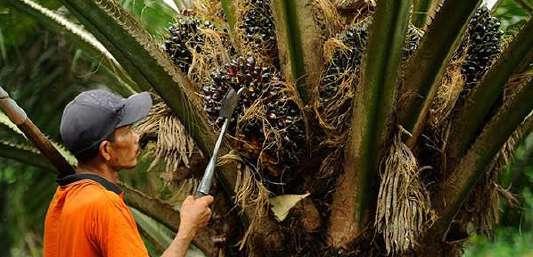
Palm Oil Today Indonesia April - June 2023 www.indopalmoil.com 24 COMMENTARY
Indonesian palm oil at critical juncture: will it thrive or dive?

Despite the policy uncertainty over the past two years and escalating negative campaign by the European Union and many green NGOs, the palm oil industry has proven its resilience.
JAKARTA – Overshadowed by tougher antimarket policies to stabilize the price of cooking oil at the government-fixed level and a weakening palm oil market, the Indonesian Palm oil Association (Gapki) will convene its national conference, held once every five years, in Bali on March 8-10.
As the representative of the upstream palm oil industry, Gapki will discuss the prospects, key issues and strategies for multistakeholder efforts to rise to the emerging challenges faced by the industry. A timely and correct response by the organization in engaging the government and other key stakeholders to address any threats will ensure palm oil can thrive sustainably. On the contrary, failure to act or inaction against growing internal and external issues will lead to a bleak future for the palm oil industry as has happened to other failed commodities, such as coconut and rubber, which enjoyed a robust market and growth in the 1960s-1970s but went bust in the 1980s. Despite the policy uncertainty over the past two years and escalating negative campaign by the European Union and many green NGOs, the palm oil industry has proven its resilience.
The burgeoning development of oil palm plantations to an estimated total area of more than 16.5 million hectares in 2022 and an annual production of over 50 million tons of oil has made the industry the second largest foreign exchange earner after coal. About two-thirds of the total output are exported in crude palm oil and its derivatives. Yet more important to the economy is that about 40 percent of the total plantation area is owned by about 3 million smallholders, a factor that makes its role significantly important in combating poverty in rural areas.
Among the ongoing challenges facing the industry for the next decade is its persistent negative international perception, notably in the Europe Union, as one of the main drivers of deforestation, which has prompted many advanced countries to campaign against the commodity through protective trade measures. The most outstanding of the laws perceived to be protectionist trade policies in the name of mitigating climate change is the EU deforestation legislation. Certainly, the hottest and most contentious issue during the conference will be the antimarket measures issued by the government in January in another concerted bid to stabilize the price of the simply packaged cooking oil at the government-fixed level.
The government miserably failed to learn lessons from the failure of its eight market-distortion policies issued during the peak of the commodity boom in the first half of 2022 to tame the spiraling cooking oil price. The government seemed unaware of all the damage caused by the series of miscalculated actions, which have soured its relations with palm oil companies and sown mutual distrust between the two parties. The government still tends to blame companies for not supporting its price stabilization measures, while the main blame should be put on its utterly poor institutional capacity to implement the erratic measures.
Palm oil companies agree that government market intervention is imperative to protect consumers from the inflationary impacts of the steep price hikes for cooking oil caused by a global surge in the prices of edible oils. Past mistakes have shown that making market policies without prior meaningful consultation with the market players and commodity producers, and without a serious assessment of the government’s institutional capacity to implement the policies, is prone to loopholes and doomed to failure. The national conference should therefore be a good forum to work on business-friendly policy recommendations to help stabilize the cooking oil as a staple food. The basic fact is price volatility is one of the main characteristics of the international commodity market. But as a major source of food and energy, the government should have a price stabilization mechanism at hand to cope with such volatility. But market-distortive measures will never be effective in maintaining price stability due to the bureaucratic red tape needed to manage such antimarket measures in view of the inadequate institutional capacity of the government. For instance, the new domestic market obligation (DMO) policy will never run smoothly without a single, state institution being fully in charge of managing the logistics and distribution and acting as the price stabilizer. Another important issue that needs to be discussed is technical details for the enforcement of Government Regulation No.26/2021 issued in April 2021 which requires oil palm companies to act as the agent of development for smallholders around their concessions, empowering the farmers with assistance and extension services under commercially viable partnerships. Such partnerships should cover at least equivalent to 20 percent of the plantation concession of companies. The implementation of such mutually beneficial business partnerships is crucial to raise the yield of smallholder estates, which now is only about half of that of companies, and consequently increase their income, thereby reducing the need to constantly expand plantation areas at the expense of forested areas. Even the environmental NGOs, which were formerly most critical of the industry have acknowledged that most big companies in the country have strictly implemented the principles of sustainability in their plantation management to fulfill the market demand for environmentally friendly products. But smallholders do not have the capacity or the resources to meet the sustainability standards due to a lack of knowledge and the low yield of their plantations.
Another important agenda for the conference to appease the international criticism of the industry is the slow implementation of the Indonesian Sustainable Palm Oil (ISPO), which covers the legal, social and environmental standards. The government regulation has required all oil palm plantations to be certified under the ISPO program by 2025, but until last year only about 3.7 million ha of the 16.7 million ha total estates have been certified with sustainable palm oil. The Gapki national conference is an opportunity to validate the relevance of the organization as the authoritative representation of Indonesian palm oil growers and a highly regarded partner for the government and other key stakeholders. Consequently, an influential Gapki is needed to build a country-wide coalition in dealing with domestic as well as global industry issues in order to protect the industry and capitalize on development opportunities for sustaining palm oil growth in Indonesia.
www.indopalmoil.com
25 COMMENTARY
PERUSAHAAN KELAPA SAWIT HARUS MENGGANTI POHON TUA ATAU MUSNAH, KATA PENGAWAS
Roundtable on Sustainable Palm Oil (RSPO) mengatakan bahwa tingkat penanaman kembali cenderung menurun dalam 15 tahun terakhir.
KUALA LUMPUR: Perusahaan kelapa sawit Malaysia harus menanam kembali pohon kelapa sawit mereka yang sudah tua dan tidak produktif untuk mengatasi panen yang stagnan dan mempertahankan daya saing produsen terbsesar kedua dunia tersebut, kata seorang eksekutif industri.
Produksi dalam negeri, yang menyumbang sekitar 23% dari produksi minyak kelapa sawit global, telah stagnan selam enam tahun terakhir di tengah meningkatnya permintaan minyak nabati termurah di dunia. Panen anjlok mendekati angka terendah dalam 40 tahun pada tahun pemasaran 2020/21 setelah pandemi memicu kekurangan akut tenaga kerja untuk memanen dan menanam kembali pohon, membuat harga meroket ke rekor tertinggi dan menyebabkan kenaikan biaya bahan makanan, deterjen dan produk berbasis minyak kelapa sawit lainnya.
Tingkat penanaman kembali telah mengalami tren menurun dalam 15 tahun terakhir, sebagian karena petani memanfaatkan kenaikan harga buah sawit, kata Carl Bek-Nielsen, salah satu ketua Roundtable on Sustainable Palm Oil (RSPO), sebuah pengawas industri kepada Reuters.
Pohon kelapa sawit tua yang tidak produktif dan biasanya ditanam kembali dengan bibit unggul yang tahan terhadap kekeringan dan penyakit. Tetapi perusahaan perkebunan dan petani kecil telah menunda program penanaman kembali, membatasi pemulihan hasil yang signifikan. “Menanam kembali atau musnah. Kegagalan untuk menanam kembali tepat waktu telah berlangsung terlalu lama,” kata Bek-Nielsen, yang juga merupakan kepala eksekutif United Plantations Bhd. “Jika tren ini berlangsung, kita semua akan melihat panen kita menurun lebih jauh dan kemampuan kita untuk bersaing di pasar internasional juga akan menurun.” Ini bahkan lebih penting karena hasil panen yang baik di produsen baru di Amerika Latin dan Afrika, tambahnya.
Bek-Nielsen memperkirakan produksi Malaysia pada tahun 2023 pada angka 19 juta ton, dibandingkan 18,45 juta ton dari tahun sebelumnya. Dia memperkirakan harga rata-rata minyak kelapa sawit mentah tahun 2023 ada di antara RM3.700 dan RM4.200 per ton.
PALM OIL FIRMS MUST REPLACE OLD TREES OR PERISH, SAYS SUPERVISOR

Roundtable on Sustainable Palm Oil (RSPO) says replanting rates have been on a declining trend in the past 15 years.
KUALA LUMPUR: Malaysia’s palm oil companies must replant their vast hectarage of old, unproductive palm oil trees to overcome stagnant yields and maintain the country’s competitiveness as the world’s second-largest producer, an industry executive said.
Production in the country, which accounts for around 23% of global palm oil output, has been stagnant over the past six years amid rising demand for the world’s cheapest edible oil. Yields plummeted to near 40-year lows in the 2020/21 marketing year after the pandemic triggered an acute shortage of workers to harvest and replant trees, sending prices skyrocketing to record highs and leading to increased costs of foodstuff, detergent and other palm oil-based products.
Replanting rates have been on a declining trend in the past 15 years, partly as planters capitalise on rising prices of palm fruits, Carl Bek-Nielsen, co-chairman of the Roundtable on Sustainable Palm Oil (RSPO), an industry watchdog, told Reuters.
Old palm oil trees are unproductive and are typically replanted with higher-yielding seedlings that are resistant to drought and disease. But plantation companies and smallholders have delayed replanting programmes, limiting a significant recovery in yields. “Replant or perish. The failure to replant in a timely manner has been going on for far too long,” Bek-Nielsen, who is also the chief executive of United Plantations Bhd said. “If this trend continues, we are going to see our yields regress even more and our ability to compete on the international market will also be undermined.” This is even more crucial as yields are good in emerging producers in Latin America and Africa, he added.
Bek-Nielsen forecast Malaysia’s production in 2023 at 19 million tons, compared with 18.45 million tons the year before. He forecasts 2023 average crude palm oil price at between RM3,700 and RM4,200 a tonne.
Palm Oil Today Indonesia April - June 2023 www.indopalmoil.com 26 PLANTATION NEWS



June 2023 Sandakan Community Hall Reach Out to Malaysia's Largest Palm Oil Industry, at The Heart of The Industry! EXHIBITION ORGANIZED BY: OFFICIAL MEDIA: 1-2 +6011-1143 0726 (WhatsApp) info@ reworksmy.com EXHIBITION ENQUIRIES: www.palmoilfair.com SABAH EDITION
MENTERI MEMPERCEPAT PEREMAJAAN PERKEBUNAN KELAPA SAWIT PETANI KECIL
Jakarta – Menteri Koordinator Bidang Perekonomian Airlangga Hartarto berjanji akan mempercepat peremajaan perkebunan kelapa sawit petani kecil yang kini baru mencapai 200 ribu hektar pada tahun 2022, dari target 540 ribu hektar.
Untuk mencapai ini, pemerintah membuka akses peremajaan kelapa sawit melalui kemitraan antara penanam dan perusahaan rekanan dengan beberapa syarat, termasuk penggunaan bibit bersertifikat, pengelolaan perkebunan sesuai dengan kriteria ISPO, dan komitmen dari perusahaan untuk menjadi pemasok kebutuhan industri. “Dengan kondisi seperti ini, tentunya, kami mendorong ketersediaan bibit untuk dipersiapkan dengan baik dan juga bekerja sama dengan pemasok kebutuhan, sehingga penanam dapat mendorong program peremajaan ini, termasuk menjadikan program ini menguntungkan,” kata Hartarto dalam sebuah pernyataan resmi pada hari Kamis.
Hartarto mengatakan pada tahun 2022, 717 anggota Gabungan Pengusaha Kelapa Sawit Indonesia (GAPKI) mengontrol 3,69 juta hektar, atau sekitar 22 persen dari luas area kelapa sawit nasional yang tersebar di 21 provinsi.
Melalui Konferensi Nasional GAPKI ke-11, yang diadakan pada hari Rabu (8 Maret), dia berharap pengurus GAPKI yang baru dapat memberikan kontribusi nyata untuk percepatan pencapaian target peremajaan sawit petani kecil dan sertifikasi Indonesian Sustainable Palm Oil (ISPO). “Pemerintah mendorong seluruh anggota GAPKI untuk tetap optimis terhadap prospek perekonomian nasional. Kita tahu bahwa minyak kelapa sawit merupakan salah satu minyak nabati yang paling diminati di dunia, dan harganya lebih terjangkau dibandingkan minyak nabati lain,” katanya. Dia mengatakan bahwa pemerintah berkomitment untuk memastikan kelapa sawit Indonesia tetap berdaya saing dalam pasar ekspor karena telah menjadi komoditas ekspor unggulan.
Perkebunan kelapa sawit dapat secara langsung mempekerjakan 16 juta tenaga kerja, baik yang bekerja langsung di perkebunan maupun yang tidak langsung. “Perusahaan kelapa sawit juga dapat meningkatkan nilai tambah produk mereka dan berkontribusi terhadap perolehan devisa nonmigas secara signifikan pada tahun 2022 sebesar 12,76 persen,” katanya.
MINISTER TO ACCELERATE REPLANTING OF SMALLHOLDER OIL PALM PLANTATIONS
Jakarta - Coordinating Minister for the Economy Airlangga Hartarto has vowed to accelerate the rejuvenation of smallholder palm oil plantations that had only reached 200 thousand hectares in 2022, from the targeted 540 thousand hectares.
To achieve this, the government is opening access to palm oil rejuvenation through a partnership scheme between planters and partner companies with several conditions, including the use of certified seeds, plantation management according to the ISPO criteria, and a commitment from the company to become an off-taker. “Under these conditions, of course, we encourage the availability of seeds to be prepared properly and also to work with off-takers, so that the planters can encourage this replanting program, including making this program bankable,” Hartarto noted in an official statement on Thursday.
Hartarto said that in 2022, 717 members of the Indonesian Palm Oil Association (Gapki) control 3.69 million hectares, or around 22 percent of the national palm oil area spread across 21 provinces.
Through the 11th Gapki National Conference held on Wednesday (Mar 8), he hopes that the new management of Gapki will make a real contribution to accelerating the achievement of the target of smallholder palm oil rejuvenation and Indonesian Sustainable Palm Oil (ISPO) certification. “The government encourages all members of Gapki to be optimistic about the prospects for the national economy. We know that palm oil is one of the world’s most popular vegetable oils, and the price is more affordable compared to other vegetable oils,” he stated. He said the government is committed to ensuring that Indonesian palm oil remains competitive in the export market as it has become a primary export commodity.
Palm oil plantations can directly employ 16 million workers, both those who work directly in plantations and indirectly. “Palm oil companies are also able to increase the added value of their products and contribute significantly to non-oil and gas foreign exchange earnings in 2022 of 12.76 percent,” he stated.

Palm Oil Today Indonesia April - June 2023 www.indopalmoil.com 28 PLANTATION NEWS
KESULITAN TENAGA KERJA
MEREDA
PETALING JAYA: Kesulitan tenaga kerja pada sektor perkebunan kelapa sawit di Malaysia telah mereda di mana banyak pemilik kebun mengharapkan kenormalan pada akhir tahun, kata ketua eksekutif Asosiasi Minyak Kelapa Sawit Malaysia (Malaysian Palm Oil Association / MPOA) Joseph Tek. Ini menyusul kembalinya lebih banyak pekerja asing, katanya.
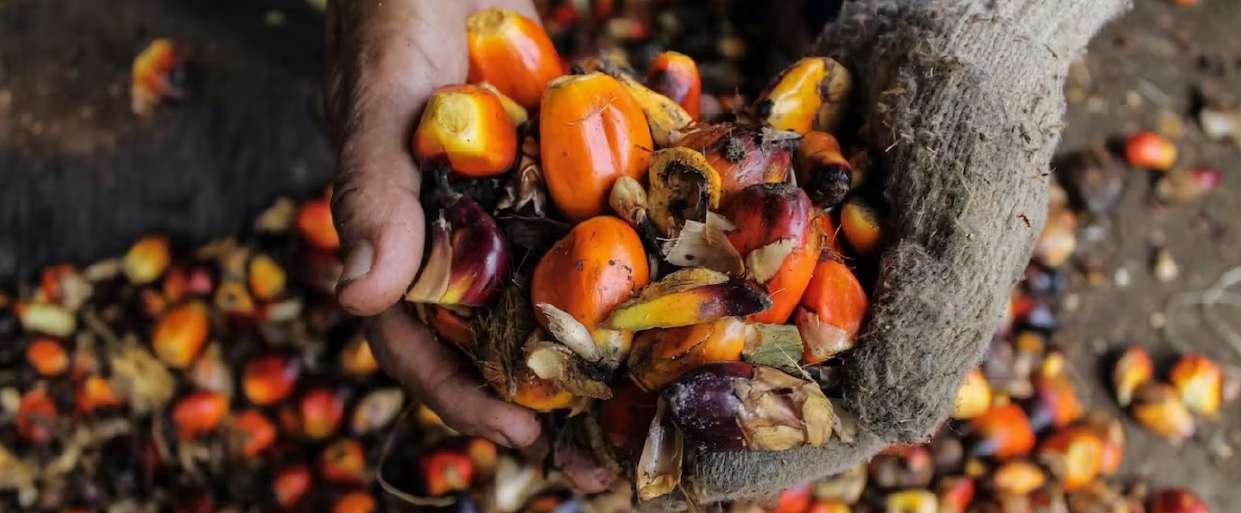
Berdasarkan survei asosiasi tersebut terkait rekrutmen tenaga kerja asing untuk tahun 2022, Joseph Tek mengatakan bahwa 21.000 tenaga kerja asing telah kembali ke perkebunan anggota MPOA. Namun, kekurangan tenaga kerja dengan keterampilan yang tepat untuk memanen tetap menjadi tantangan utama dalam industri perkebunan, menurut Joseph Tek. “Biasanya butuh waktu beberapa bulan untuk melatih tenaga kerja baru untuk menjadi terampil dalam pekerjaan perkebunan, terutama pemanenan. “Keterampilan yang melekat dan budaya pekerja baru mungkin juga tidak mengarah pada produktivitas yang diinginkan. “Butuh waktu dan mudah-mudahan ada kesiapan dengan produksi puncak tahun ini sehingga kerugian bisa ditekan,” ujarnya usai RUPS MPOA cabang Sabah di Sandakan, Sabtu lalu.
MPOA mewakili sekitar 70% dari area perkebunan kelapa sawit milik swasta di negara ini, yang merupakan 40% dari total area penanaman kelapa sawit. Semantara itu, Joseph Tek memperkirakan industri minyak kelapa sawit global akan menghadapi ketersediaan minyak kelapa sawit mentah (crude palm oil / CPO) yang lebih ketat mengingat potensi peningkatan marjinal kurang dari 3% dalam hasil Malaysia dan Indonesia. “Produksi CPO diperkirakan akan terpengaruh oleh curah hujan yang tinggi saat ini dan banjir di beberapa bagian Malaysia yang mempengaruhi perkebunan kelapa sawit. “Ini akan membatasi produksi minyak kelapa sawit dalam waktu dekat karena gangguan jangka pendek pada operasi pemanen perkebunan, logistik, dan pengaturan buah yang lebih buruk,” jelasnya.
Joseph Tek menambahkan bahwa tiga tahun terakhir, La Nina telah menyebabkan kerusakan yang signifikan sementara meningkatnya pohon kelapa sawit yang sudah tua di Malaysia akan membatasi pasokan dan kegiatan penanaman kembali melambat karena biaya yang lebih tinggi. Peristiwa lainnya yang akan berdampak pada industri termasuk potensi pergeseran cuaca dari La Nina ke El Nino, pembelanjaan konsumen Tiongkok dengan pembukaan kembali perbatasn, perang Rusia-Ukraina yang sedang berlangsung, kebijakan Indonesia terkait pembatasan ekspor di mana produsennya meningkatkan kewajiban bahan bakar nabati B35 dan pergerakan Dolar AS.
Mengenai harga CPO, Joseph Tek mengatakan: “Secara keseluruhan, harga seharusnya masih dapat bertahan di kisaran RM4.000 per ton dalam waktu dekat.” Dia memperingatkan para pemain dalam rantai pasokan untuk memantau dengan cermat perkembangan terbaru di sektor ini dan membuat rencana yang sesuai untuk memitigasi risiko dan memanfaatkan setiap peluang yang mungkin muncul. “Dengan menysun strategi dan mengejar rencana penanaman kembali yang pragmatis untuk keberlanjutan bisnis bersamaan dengan investasi dan pelatihan dalam mekanisasi yang tepat, terutama untuk pengumpulan di lapangan, terutama untuk pengumpulan di lapangan merupakan ‘panggilan pertempuran’ industri untuk mekanisasi atau musnah,” tambah Joseph Tek.
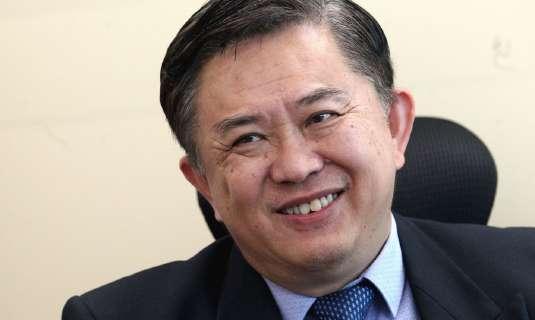
Di Sabah, katanya negara bagian tersebut memproduksi 23,3% CPO dalam negeri, menghasilkan 4,29 juta ton CPO dari lahannya yang seluas 1,51 juta hektar lahan perkebunan kelapa sawit. Namun, hasil panen menurun 2,4% tahun-ke-tahun menjadi 15,4 ton per hektar per tahun sementara tingkat ekstraksi minyak dan biji telah menurun masing-masing sebesar 1,5% menjadi 20,25% dan 0,9% menjadi 4,47%. “Pelaku industri Sabah berharap untuk membahas langkah-langkah dengan pemerintah negara bagian dan lembaga-lembaganya untuk meminimalisir hilangnya peluang panen dan pendapatan bagi petani dan negara karena kekurangan tenaga kerja.”
Diperkiran Sabah akan menderita kerugian lebih dari RM 5 miliar pada tahun 2022 karena kekurangan tenaga kerja. Selain itu, Sabah harus memperhatikan profil pohon kelapa sawitnya yang berumur tua, yang merupakan wilayah dengan pohon kelapa sawit berusia di atas 25 tahun tertinggi di Malaysia, tambahnya.
www.indopalmoil.com Palm Oil Today Indonesia April - June 2023 29 PLANTATION NEWS
PETALING JAYA: The labour woes in the oil palm plantation sector in Malaysia have eased with many planters expecting normalcy by the middle of this year, says Malaysian Palm Oil Association (MPOA) chief executive Joseph Tek.
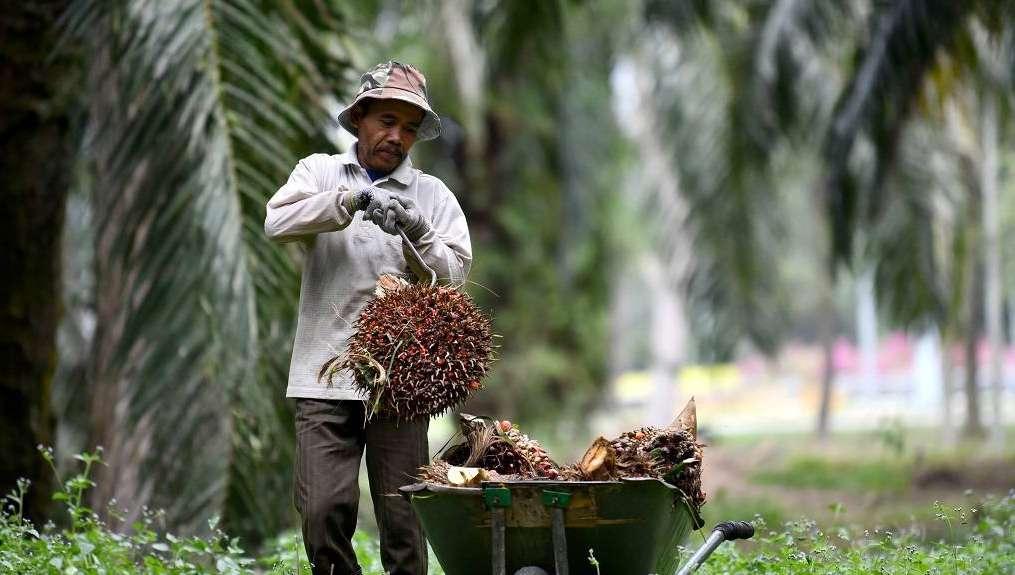

This is following the return of more foreign workers, he noted. Based on the association’s survey on recruitment of foreign workers for 2022, Joseph Tek said about 21,000 foreign workers have returned to the estates of the MPOA members. However, the shortage of workers with right skill to harvest remains the main challenge faced by the plantation industry, according to Joseph Tek. “Typically, it will take a few months to train new workers to be skillful in plantation works, especially harvesting. “The inherent skill set and culture of new workers may also not lead to desired productivity. “It will take time and hopefully readiness will be there by peak production this year so that losses can be curbed,” he said in a statement after the MPOA Sabah branch AGM in Sandakan last Saturday.
MPOA represents about 70% of the privately-owned oil palm-planted areas in the country, which makes up about 40% of the total planted oil palm area. Meanwhile, Joseph Tek expects the global palm oil industry to face tighter availability of crude palm oil (CPO) given a potential marginal increase by less than 3% in output from Malaysia and Indonesia. “CPO production is expected to be impacted by the current heavy rainfall and floods in parts of Malaysia affecting oil palm estates. “This will constrict palm oil production in the near future because of short-term disruptions to estate harvesting operation, logistics and poorer fruit-set,” he pointed out.
Joseph Tek added the last three years of La Nina had caused significant damage while the rising over-aged palm trees in Malaysia would constrain supply and replanting activities have been slow due to high costs. Other significant events that would impact the industry include the potential weather shift from La Nina to El Nino, China’s consumer spending with the reopening of borders, ongoing Russia-Ukraine war, Indonesian policy on restrictions to export with its producers ramping up its B35 biodiesel mandate and the US dollar movement.
LABOUR WOES EASING
On CPO prices, Joseph Tek said: “Overall, prices should be able to find sustained support at current level encircling RM4,000 per tonne in the near-term.” He cautioned players in the palm oil supply chain to closely monitor the latest developments in the sector and plan accordingly to mitigate potential risks and take advantage of any opportunities that may arise. “By strategising and pursuing pragmatic replanting plans for long-term business sustainability along with investment and training in right-fitting mechanisation, especially for in-field collection is the industry’s ‘battle-call’ to mechanise or perish,” added Joseph Tek.
On Sabah, he said the state produced 23.3% of the country’s CPO, generating 4.29 million tons of CPO from its land bank of 1.51 million ha of planted oil palm area. However, the crop yield declined by 2.4% year-on-year to 15.4 tons per ha per year while both oil and kernel extraction rates have dropped by 1.5% to 20.25% and 0.9% to 4.47% respectively. “Sabah industry players look forward to discussing measures with the state government and its agencies to minimise opportunity losses in crop and revenue to the growers and the state due to the labour shortage.”
It is estimated that Sabah suffered over RM5bil losses in 2022 due to labour shortage. In addition, Sabah should address its high old-age palm trees profile, which is the highest area of palm trees above 25 years old in Malaysia, he added.
www.indopalmoil.com
30 PLANTATION NEWS
INDUSTRI MINYAK KELAPA SAWIT AKAN TETAP
MENJADI TULANG PUNGGUNG PEREKONOMIAN
NASIONAL YANG KRUSIAL: VP
akarta – Industri minyak kelapa sawit dan produk turunannya masih menjadi pilar penting perekonomian nasional, kata Wakil Presiden Ma’ruf Amin. “Saya yakin di masa depan, industri kelapa sawit masih akan menjadi pilar penting perekonomian nasional,” kata Amin di Istana Wakil Presiden pada hari Jumat.
Hal itu disampaikan Wakil presiden saat membuka rapat kerja nasional Gabungan Pengusaha Kelapa Sawit Indonesia (GAPKI), yang juga dihadiri Menteri Pertanian Syahrul Yasin Limpo dan Ketua GAPKI Joko Supriyono. Saat ini, industri kelapa sawit menjadi salah sat tulang pungung perekonomian nasional, tegas wakil presiden.

Pada tahun 2022, devisa dari industri kelapa sawit mencapai US$39,28 miliar, mencapai nilai tertinggi dibandingkan tahun-tahun sebelumnya. “Kelapa sawit merupakan anugerah Tuhan Yang Maha Esa kepada Indonesia, dan kami sangat bersyukur,” kata Wakil Presiden. Kondisi iklim dan tanah Indonesia memungkinkan kelapa sawit tumbuh dengan subur, sehingga pada akhirnya memberikan kontribusi positif bagi perekonomian nasional, jelasnya. Amin mengatakan bahwa industri minyak kelapa sawit telah memenuhi sepertiga permintaaan minyak nabati dunia.
Diperkirakan pada tahun 2035, permintaan pangan oleo, produk pangan kelapa sawit, akan mencapai US$106,16 miliar, dan permintaan industri oleokimia akan mencapai US$190 miliar, jelasnya. DIa menekankan perlunya memanfaatkan potensi industri minyak kelapa sawit. “Industri kelapa sawit juga menyediakan kesempatan kerja yang luas bagi sekitar 16,2 juta pekerja, secara langsung maupun tidak langsung. Ini berarti perkebunan kelapa sawit berkelanjutan sudah bukan merupakan sebuah opsi, melainkan (telah menjadi) sebuah kewajiban,” tegasnya.
Oleh karena itu, pemerintah secara konsisten meningkatkan upaya pengelolaan kelapa sawit, seperti menyusun Rencana Aksi Perkebunan Kelapa Sawit Berkelanjutan untuk tahun 2019 – 2024. “Di antara sasaran yang kami tuju antara lain peningkatan kapasitas dan kemampuan petani; legalisasi status lahan; penggunaan kelapa sawit sebagai energi baru dan terbarikan; serta mewujudkan perkebunan kelapa sawit yang berkelanjutan,” jelas Wakil Presiden. Tujuan tersebut dapat tercapai jika semua pemangku kepentingan, termasuk GAPKI, dapat memainkan perannya dengan baik.
Ketua GAPKI Joko Supriyono menegaskan Kementerian Perdagangan belum mengembalikan Rp344 miliar (US$22.5 juta) atas potongan harga minyak goreng periode 19-31 Januari 2022, dan masih dalam proses verifikasi. “Sedang dalam progres karena harus dilakukan oleh pihak ketiga,” ujarnya. Setelah proses identifikasi selesai, akan dilanjutkan dengan rekomendasi dari Kementerian Perdagangan dan Kementerian Industri, kemudian Badan Pengelola Dana Perkebunan Kelapa Sawit (BPDPKS) mengembalikannya, pungkasnya.

www.indopalmoil.com
“Artinya, perkebunan sawit berkelanjutan bukan lagi sebuah opsi, melainkan (sudah menjadi) kewajiban”
31 SUSTAINABILITY NEWS
J
THE PALM OIL INDUSTRY WILL CONTINUE TO PLAY A CRITICAL ROLE IN THE NATIONAL ECONOMY : VP
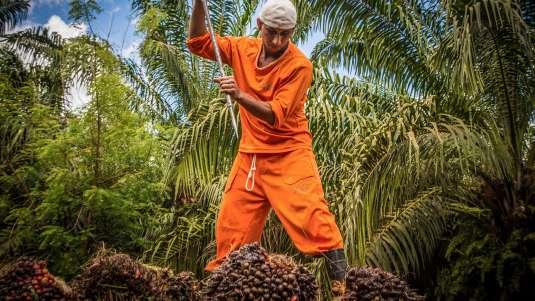
akarta - The palm oil and derivative products industry would still serve as a crucial pillar of the national economy, Vice President Ma’ruf Amin stated. “I have confidence that in future, the palm industry will still be an important pillar of the national economy,” Amin stated at the Vice President’s Palace here on Friday.
The vice president made the remark while opening the11th national meeting of the Indonesian Palm Oil Association (GAPKI), also attended by Agriculture Minister Syahrul Yasin Limpo and Head of GAPKI Joko Supriyono. Currently, the palm oil industry has been one of the national economic backbones, the vice president affirmed.
In 2022, foreign exchange from the palm oil industry reached US$39.28 billion, thereby making the figure the highest as compared to past years. “Palm is gift from the God Almighty to Indonesia, which we much be grateful for,” the vice president remarked. Indonesia’s climate and soil conditions allow for palm to thrive, thereby ultimately contributing positively to the national economy, he elaborated. Amin remarked that the palm oil industry met a third of the global demand for vegetable oil.
It was estimated in 2035 that the demand for oleofoods, or palm products for food, would reach US$106.16 billion, and demand for the oleochemical industry would reach US$190 billion, he remarked. He stressed the need to tap into the potential of the palm oil industry. “Palm industry also provides vast job opportunities for some 16.2 million workers, directly or non-directly. This means that a sustainable palm plantation is no longer an option, as it (has become) a must,” he emphasized.
Hence, the government consistently improves palm management efforts, such as by formulating the National Action Plan on Sustainable Palm Plantation for 2019-2024. “Among the targets we aim for are the farmers’ capacity and capability improvement; plot status legalization; use of palm as new, renewable energy; and pursuing diplomacy to achieve sustainable palm plantation,” the vice president elaborated. The goals could be met if all stakeholders, including GAPKI, played their part well.
Head of GAPKI Joko Supriyono affirmed that the Trade Ministry had yet to reimburse Rp344 billion (US$22.5 million) for the cut in cooking oil price during January 19-31, 2022, period, and a verification process was still underway. “It is in progress because it must be done by a third party,” he remarked. Once the identification process concludes, it will be followed with recommendation from the Trade Ministry and Industry Ministry, and then the Palm Oil Plantation Fund Management Agency (BPDPKS) reimburses it, he concluded.

Palm Oil Today Indonesia April - June 2023 www.indopalmoil.com 32 SUSTAINABILITY NEWS
J
“This means that a sustainable palm plantation is no longer an option, as it (has become) a must”


www.indopalmoil.com
Godrej Agrovet bekerjasama dengan Pemerintah Negara Bagian Andhra Pradesh
Godrej Agrovet Limited. (GAVL), salah satu perusahaan agribisnis terdiversifikasi terbesar di India mengumumkan bahwa mereka telah menandatangani Nota Kesepakatan (Memorandum of Understanding / MoU) dengan Pemerintah Negara Bagian Andhra Pradesh (AP) di sela-sela Andhra Pradesh Global Investors Summit (APGIS) 2023. Sebagai bagian dari MoU, bisnis kelapa sawit GAVL diperkirakan akan melakukan investasi sebesar INR 100 Crores untuk mendirikan fasilitas manufaktur Pabrik Penyulingan Minyak Goreng & Ekstraksi Pelarut.
GAVL merupakan pengolah kelapa sawit terbesar di India dan bekerja langsung dengan petani di sepanjang siklus hidup tanaman mereka. Perusahaan tersebut kini memiliki 45.000 hektar perkebunan kelapa sawit di AP, pabrik baru yang diusulkan akan memiliki kapasitas penyulingan 400 ton per hari dan akan didirikan di Seethanagaram, Distrik Eluru di AP. Ini merupakan proyek hilir pertama GAVL untuk produk bernilai tambah dalam minyak dan lemak.
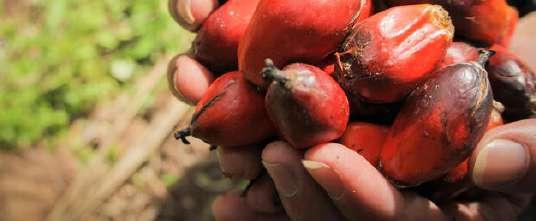
Balram Singh Yadav, Direktur Utama GAVL mengatakan, “MoU ini sejalan dengan strategi jangka panjang Godrej Agrovet untuk menjadi katalis dalam misi minyak India melalui produksi kelapa sawit yang berkelanjutan. Investasi baru ini dibangun di atas investasi INR 1.000 Crores di negara bagian oleh bisnis kelapa sawit, pakan ikan dan susu.”
Hadir pada kesempatan penandatangan MoU adalah Menteri Pertanian, Pemerintah Andhra Pradesh, Sri. Kakani Goverdhan Reddy, Sekretaris – Pemrosesan Pangan, AP, Sri Chiranjiv Choudhary, I.F.S., Sri L. Sridhar Reddy – Direktur Utama, Divisi Pemrosesan Pangan AP, Sougata Niyogi, CEO – Kelap Sawit, GAVL dan Rakesh Swami, Presiden Grup urusan Korporat, Godrej Industries Ltd.

Mengomentari penandatangan MoU, , Sougata Niyogi, CEO –Kelapa Sawit, GAVL mengatakan, ”Setelah memelopori inovasi dalam mengembangkan sektor kelapa sawit dalam kondisi irigasi, negara bagian AP terus memimpin volume tandan buah segar dan produksi minyak negara. Dengan sebagian besar perkebunan kelapa sawit GAVL di negara bagian, fasilitas yang dekat dengan Pabrik Minyak Kelapa Sawit Mentah kami akan membantu memenuhi kebutuhan penangkaran yang berasal dari pekerjaan kelapa sawit di negara bagian selatan bersama dengan permintaan
pemain minyak kelapa sawit mentah lainnya di wilayah tersebut. Hal ini sejalan dengan Misi Nasional terkait Minyak Goreng Kelapa Sawit (National Mission on Edible Oil – Oil Palm / NMEO-OP) akan membantu mengurangi ketergantungan negara pada impor.” “AP memiliki keuntungan geografis dan iklim yang unik yang akan mendorong bisnis untuk mengambil bagian dalam kisah pertumbuhan negara bagian. Sebagai Grup, kami tertarik untuk mengeksplorasi kebijakan yang ramah bisnis, kota-kota yang sedang berkembang dan calon dividen demografis untuk pertumbuhan bisnis produk konsumen, real estat, dan keuangan. Dengan dukungan sempurna dari pemerintah negara bagian dan warisan kami yang kuat akan etika bisnis yang mengutamakan manusia dan planet, kami berkomitmen untuk memperluas jejak bisnis di negara bagian ini,” tambah Rakesh Swami, Presiden Grup Urusan Korporat, Godrej Industries Ltd.
India merupakan importir bersih minyak kelapa sawit. Kurangnya produksi dalam negeri tidak hanya memberi tekanan pada industri dan sektor terkait, tetapi juga pada perekonomian India. Oleh karena itu, sejak peluncuran Misi Nasional terkait Minyak Goreng – Kelapa Sawit (National Mission on Edible Oil – Oil Palm / NMEO-OP), pada bulan Agustus 2021, GAVL telah menetapkan tujuan untuk menambah 60.000 hektar perkebunan kelapa sawit tambahan selama lima tahun ke depan untuk mendukung pembangunan jangka panjang kelapa sawit di India. Untuk mencapai tujuan, perusahaan baru-baru ini mengumumkan peluncuran Samadhan, pusat solusi satu atap yang akan menyediakan paket pengetahuan, alat, layanan dan solusi yang komprehensif bagi petani kelapi sawit. Dengan bisnis kelapa sawit perusahaan yang saat ini beroperasi di Andhra Pradesh, Telangana, Tamil Nadu, Goa, Odisha dan Utara – Timur, berencana untuk mendirikan 50 pusat Samadhan pada tahun 2027.
Palm Oil Today Indonesia April - June 2023 www.indopalmoil.com 34 SUSTAINABILITY NEWS
Godrej Agrovet collaborates with State Government of Andhra Pradesh

Godrej Agrovet Limited. (GAVL), one of India’s largest diversified agribusiness company, today announced that it has signed a Memorandum of Understanding (MoU) with the State Government of Andhra Pradesh (AP) on the side lines of Andhra Pradesh Global Investors Summit (APGIS) 2023. As a part of MoU, GAVL’s Oil Palm business will be making an estimated investment of INR 100 Crores to set up a manufacturing facility for Edible Oil Refinery & Solvent Extraction Plant.
GAVL is the largest oil palm processor in India and works directly with the farmers for the entire lifecycle of their crop. With company already having 45,000 h.a of oil palm plantation area in AP, the proposed new plant will have a projected refining capacity of 400 tons per day and will be set up in Seethanagaram, Eluru District in AP. This is GAVL’s first downstream project for value -added products in oil and fats.
Balram Singh Yadav, Managing Director, GAVL said, “The MoU is in line with Godrej Agrovet’s long-term strategy to be the catalyst in India’s oil mission through sustainable growth of oil palm production. This new investment is built up on the INR 1000 Crores investment in the state by the Oil Palm, Aqua Feed and Dairy businesses.”
Present on the occasion of signing of MoU were Hon’ble Minister for Agriculture, Government of Andhra Pradesh, Sri. Kakani Goverdhan Reddy, Secretary – Food Processing, AP, Sri Chiranjiv Choudhary, I.F.S., Sri L. Sridhar Reddy – CEO, AP Food Processing Society, Sougata Niyogi, CEO – Oil Palm, GAVL and Rakesh Swami, Group President Corporate Affairs, Godrej Industries Ltd.
Commenting on signing off MoU, Sougata Niyogi, CEO – Oil Palm, GAVL said,”Having pioneered innovation in developing oil palm sector under irrigated conditions, the state of AP continues to lead country’s fresh fruit bunch volume and oil production. With bulk of GAVL’s oil palm plantation in the state, the facility near to our Crude Palm Oil Mills will help cater captive need originating from oil palm work in the southern states along with demand from other crude palm oil players in the region. This in sync with National Mission on Edible Oil – Oil Palm (NMEO-OP) will aid reduce nation’s dependence on imports.” “AP has a unique geographic and climatic advantage which will propel businesses to partake in the growth story of the state. As a Group, we are keen to explore the business-friendly policies, emerging cities, and aspiring demographic dividend for the growth of our consumer products, real estate, and finance businesses. With impeccable support from the state government and our strong legacy of people and planet first business ethics, we are committed to expanding the business footprint in the state,” added Rakesh Swami, Group President Corporate Affairs, Godrej Industries Ltd.
India is a net importer of palm oil. The lack of domestic production not only puts a pressure on the industry and the allied sectors but also on India’s economy. Hence since the launch of National Mission on Edible Oil – Oil Palm (NMEO-OP), in August 2021, GAVL had established a goal to add 60,000 hectares of additional oil palm plantations over the course of the next five years to support the long-term sustainable development of oil palm in India. To achieve this goal, the company recently announced the launch of Samadhan, a one stop solution centre that would provide a comprehensive package of knowledge, tools, services and solutions to oil palm farmers. With company’s oil palm business currently operating in Andhra Pradesh, Telangana, Tamil Nadu, Goa, Odisha and North – East, the plans to establish 50 Samadhan centres by 2027.

www.indopalmoil.com Palm Oil Today Indonesia April - June 2023 35 SUSTAINABILITY NEWS
An Interview with Inke Van Der Sluijs, Market Transformation Direction, Roundtable on Sustainable Palm Oil (RSPO) Sustainability and Palm Oil’s Future

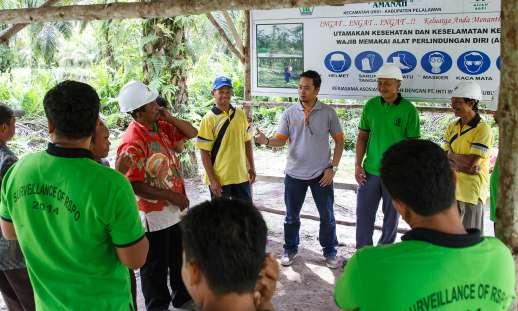

1. Can you brief me a little bit on the palm oil outlook on sustainability and supply chain concerns?
We have seen rapid growth in its early years to increase the supply of certified sustainable palm oil. It looks like we’re plateauing a little bit now. We’re around 20% of the global palm oil that is produced and certified, which means it’s deforestation-free, and it ensures that human rights are respected. We need to increase the market demand in large consumption areas. The sustainable palm oil market for Europe and North America is very mature but for Indonesia itself, although the largest producer and consumer of palm oil, there’s limited demand for sustainable palm oil. Same in Malaysia, India, and China. We need to find ways to promote sustainable sourcing in these countries. Of course, we hope to grow in this these markets, to ensure that the farmers that have changed our practices are incentivized for the change that they are making. We’ve also increased the supply of certified sustainable palm oil.
Inke van der Sluijs Director,
Market Transformation
RSPO’s Director of Market Transformation, Dr. Inke van der Sluijs, a Ph.D. holder in biology, joined the RSPO in November 2013. Inke’s role in the RSPO secretariat is to lead the global market transformation by working with regional teams to ensure that the supply and demand of certified sustainable palm oil continue to grow. The supply of certified sustainable palm oil should be met by a demand for positive impact on the ground. The focus of this work is on mature markets like Europe and North America but also big consumption markets like Indonesia, India, and China. For Africa and Latin America, as new frontiers, the focus is on sustainable production and creating local market demand. Inke works with the Shared Responsibility Unit and Working Group on ensuring that the downstream members develop sustainable sourcing, environmental, and social policies. In addition to that, she also supports the Market Development Standing Committee.
Palm Oil Today Indonesia April - June 2023 www.indopalmoil.com 36 IN THE HOT SEAT
It’s an interesting question because I’ve been based in the European market and I’m in a global position now. Before I was responsible for growing the European market, there was a lot of demand for sustainable palm oil as it’s a mature market. There’s also this active campaign against palm oil which makes our work super difficult because consumers are confused by the messages that companies used, say this product does not contain palm oil, for example. We need to educate the consumers and the companies that there’s good palm oil when it’s produced sustainably. Now the EU has adopted this legislation to halt deforestation, on imported goods for specific commodities and palm oil is one of them. We agree with the European Union that we should limit deforestation and we already founded it in 2004. For that, we agree with that direction because it creates a level playing field for our members in the region. At the same time, it should be done at a reasonable pace with requirements that the sector can meet. Saying it needs to be legal and deforestation-free is a direction that we fully support, but it also needs to be implementable. We see issues, for example, smallholders. Of course, we don’t want this legislation to come into force too quickly, because then companies cannot work with the smallholders and ensure that they can still be included in the imports into Europe. It’s really important however the detailed text of the commission is not out yet. If the European Commission decides on this direction, we’re glad because we fully support the move on halting deforestation. However, the way it should be implemented by the sector is something that they should be looking at for voluntary schemes. In other commodities, there are voluntary schemes. They should look at ways that it’s feasible for companies to implement it and ensure that they can meet the timelines that are now laid out.
The EU directive on biofuels works towards phasing out first-generation feedstocks. Direct use of palm oil for biofuels will no longer be allowed, starting in 2030. This is the same for sunflower rapeseed and all virgin oils, the feedstocks will not be used for biofuels, because of the EU’s opinion that there should be other ways to make the transport sector more sustainable. Think about hydro, hydrogen, solar power, and other means of using cooking oils, so it’s not the virgin oils that should go into biofuels. I think the sector will be impacted because the consumption of palm oil in Europe will decrease, say until 2030. I think the sector has ensured that they can import pumps for biofuels. However, it will no longer be possible to do that after 2023.

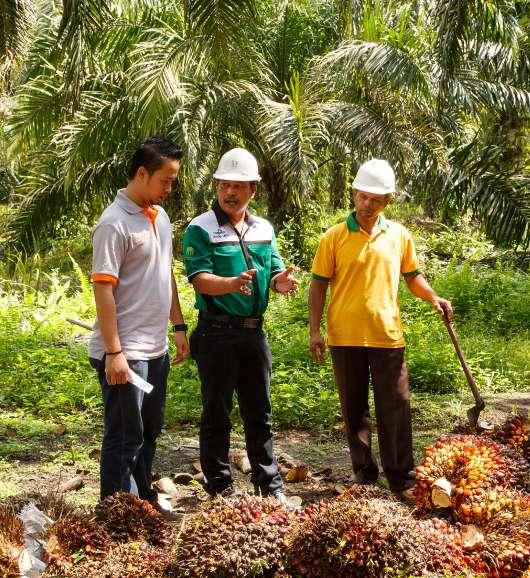

www.indopalmoil.com Palm Oil Today Indonesia April - June 2023
37 IN THE HOT SEAT
2. W hat a re y our views on t he E U’s tough stance towards palm o il? H ow can RSPO/MPOA play a role in alleviating the situation?
3. G iven I ndonesia and M alaysia’s agreement towards the EU’s r enewable-energy d irective, what a re t he s teps t he p alm oil industry has taken to address this issue?
4. E U officials say their regulations d o not t arget any one c ountry and a re a imed a t ensuring that commodity p roduction does not f urther d rive deforestation. What’s your take on this?
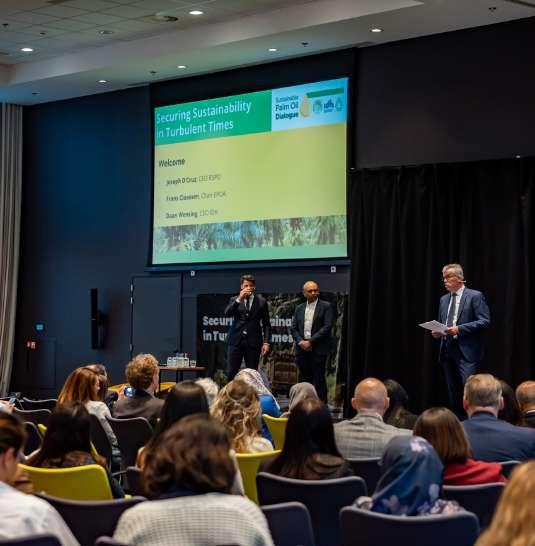

That’s correct. What they say is none of the imported goods should contribute to deforestation. Malaysia and Indonesia, of course, feel offended by the fact that the commission has listed seven commodities that have been related to deforestation in the past. However, the regulation will be applied to all commodities and imported goods. Hence, part of the sector is ready to do this as our members have not deforested since 2005 which during our standards came into effect. These companies are ready to comply and import into Europe. The challenge is that palm oil is a commodity categorized as liquid. Oftentimes, we mix sustainable material with conventional uncertified material. This will be a challenge for companies to prove that the conventional material that they have in the mix is not related to deforestation. That will be the challenge.
5. D o share with u s other challenges t hat t he palm oil industry currently o vercome and w hat a re future projects and plans.
There are a lot of challenges. There will be less harvesting and fruits going to waste. The eyes are on RSPO. When we were founded, we were very much focused on the environmental impact of the agricultural sector. These days, there’s more attention on human rights. A large challenge ahead for our members is ensuring that the workers are treated fairly, working in safe conditions, getting appropriate salary, and housing. The focus will now be on the social effects. So that’s the other thing about the regulation. RSPO is now a holistic scheme where you look at environmental and social impacts, and improve these conditions. The regulation that is out now or accepted now is not fully published and is focused on deforestation and legality. The new legislation will come on human rights and the risk is that companies will fall for the inputs if Europe only looks at deforestation and its legality. Once the human rights element comes in, they look only at human rights. Whereas if they use our skills to prove that they have done their due diligence on environmental and social elements, you have it all covered. The EU is very focused on what the director general is responsible for. It’s either environmental or social. Whereas RSPO has already evolved into a scheme that covers all of the elements of sustainability. That includes labor conditions and workers’ rights. I think that will be a challenge in the coming years. We’re currently revising our standards. By the end of the year, our new standard should be endorsed. It is about creating a standard that can be applied by our members, that is clear and auditable. The evidence for positive impacts on the ground can be proven, I think that is an important development. We hope that our members all agree and adopt our new standard by the end of the year.

Palm Oil Today Indonesia April - June 2023 www.indopalmoil.com 38 IN THE HOT SEAT
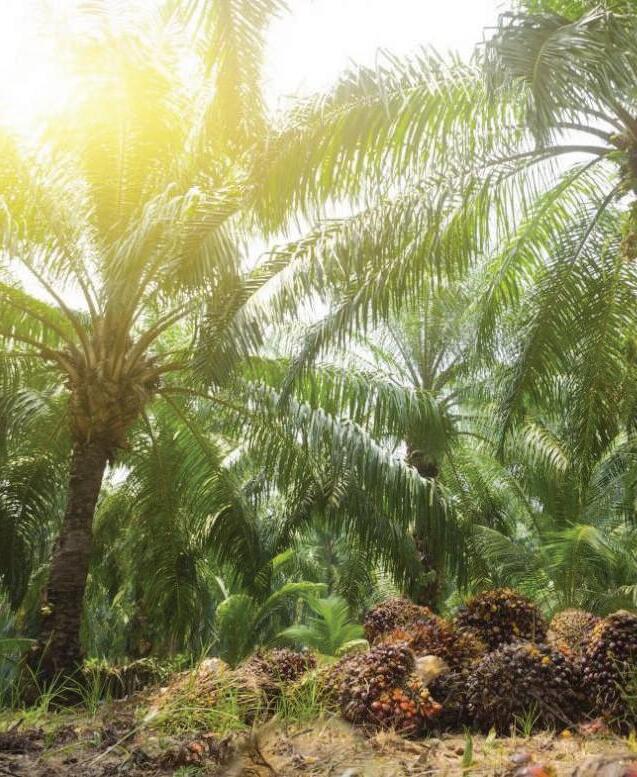






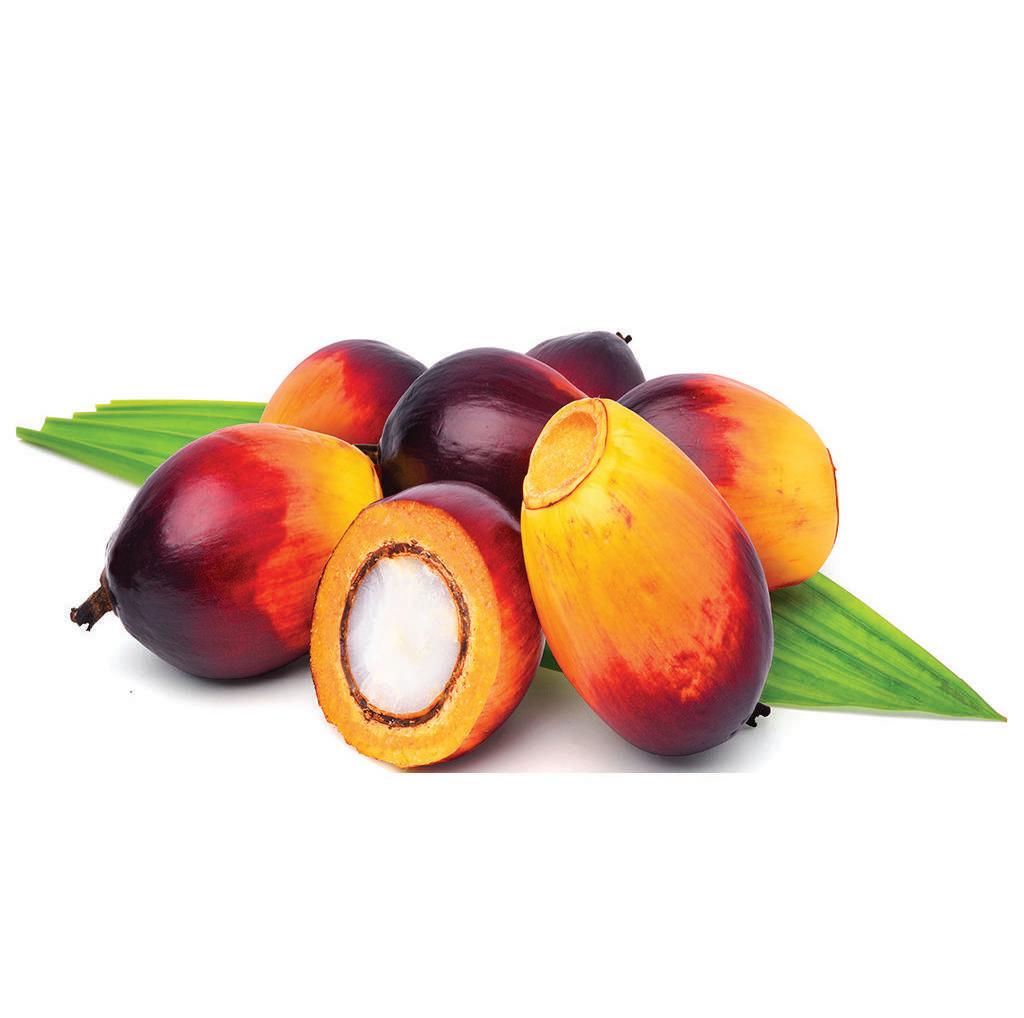
SCAN QR CODE Asia Palm Oil Magazine JuzTalk Thailand OFFICIAL MEDIA : CONFERENCE BY : Fireworks Media (Thailand) Co., Ltd. Part of The Fireworks Trade Media Group ORGANIZED BY : ENDORSED BY : Thai Palm Oil Refinery Association Thai Palm Oil Crushing Mill Association Asia Palm Oil Technology Association Thai Biodiesel Producer Association Thai Oil Palm & Palm Oil Association HOSTED BY Contact us : Tel: (+66) 2 513 1418 | Email: thai@asiafireworks.com THAILAND’S LARGEST PALM OIL TECHNOLOGY EVENT! 17-18 AUGUST 2023 CO-OP EXHIBITION CENTRE, SURATTHANI, THAILAND www.thaipalmoil.com www.palmoil-conference.com
PEMERINTAH MENDUKUNG TEKNOLOGI PENGOLAHAN KELAPA SAWIT, PENGEMBANGAN SDM
“(Pengolahan kelapa sawit) bukan lagi hanya untuk pangan, tetapi juga untuk bahan bakar di masa depan...
akarta – Pemerintah Indonesia mendukung pengembangan teknologi dan SDM di pabrik pengolahan kelapa sawit. Selama
seratus tahun, teknologi pengolahan kelapa sawit tidak mengalami perubahan, terutama produksi lemak, kata Direktur Jenderal Kementerian Industri Argo, Puti Juli Ardika dalam sebuah keterangan tertulis yang diterima pada hari Rabu. “Kini, kondisinya telah berubah. (Pengolahan kelapa sawit) tidak hanya untuk makanan, tetapi juga untuk bahan bakar di masa depan, baik untuk bahan bakar nabati ramah lingkungan, bahan bakak jet ramah lingkungan, bahan bakar ramah lungkingan, yang dapat diadopsi langsung untuk mengganti bahan bakar berbasis hayati,” jelasnya.
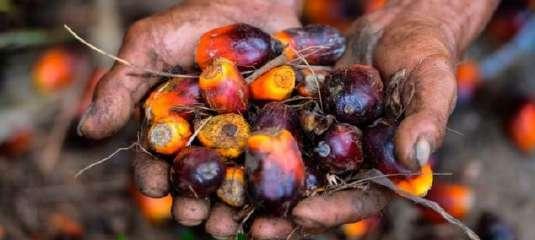

Generasi masa depan akan hidup dalam dunia yang sangat bergantung pada bahan bakar, seperti bahan bakar hayati, biopolymer, dan biomassa; oleh karena itu, Kementerian Industri sangat mendukung pengembangan teknologi pengolahan kelapa sawit, katanya. Salah satu dukungan itu adalah perubahan Peraturan Pemerintah Nomor 1 atas devisa ekspor, jelasnya. Peraturan tersebut menyatakan bahwa devisa harus tersedia di Indonesia dalam rentan waktu tertentu sehingga dapat digunakan untuk pengembangan teknologi dan komersialisasi.
Ardika juga telah menyampaikan dukungan lain, termasuk penetapan Standar Nasional (SNI) untuk minyak sawit mentah dan minyak goreng sawit. Untuk mengembangkan industri apapun, sumber daya manusia yang kompeten sangat diperlukan, tambahnya. Untuk memastikan ini, kementerian telah menerbitkan Standar Kompetensi Kerja Nasional untuk industri seperti minyak kelapa sawit mentah (crude palm oil / CPO), minyak goreng sawit, oleokimia, dan bahan bakar hayati. Standar tersebut mencakup keahlian mulai dari aspek operasional hingga manajemen.
Lembaga pendidikan di bawah kementerian telah terakreditasi untuk menerbitkan sertifikasi standar kerja profesi. Kementerian telah meminta Badan Pengelola Dana Perkebunan Kelapa Sawit (BPDPKS) untuk mengalokasikan dana beasiswa bagi mahasiswa yang mengikuti pendidikan di lembaga pendidikan kementerian untuk memenuhi kebutuhan seribu tenaga kerja setiap tahun di industri pengolahan kelapa sawit.
Anggota Badan Penelitian dan Pengembangan BPDPKS, Jenny Elisabeth, menyoroti kebutuhan perusahan pengolahan kelapa sawit untuk memproduksi minyak kelapa sawit mentah yang memenuhi kualitas untuk memenuhi standar kualitas guna menjamin daya saing industri. Hal itu disampaikan dalam “Technology & Talent Palm Oil Conference and Exhibition” yang diselenggarakan oleh Asosiasi Profesional dan Pelaku Perkebunan Nasional pada hari Selasa (7 Maret 2023). “Permintaan pasar yang terus meningkat akan kualitas produk olahan harus dipenuhi oleh perusahaan pengolah kelapa sawit dengan memproduksi CPO berkualitas tinggi. Dari perkebunan, pengolahan kelapa sawit, hingga pengangkutan CPO, semua (kualitas baik) harus dijaga,” katanya.
Palm Oil Today Indonesia April - June 2023 www.indopalmoil.com 40 INNOVATION & TECHNOLOGY
J
GOVT SUPPORTING PALM PROCESSING TECHNOLOGY, HR DEVELOPMENT
Jakarta - The Indonesian Government is supporting the development of technology and human resources at palm processing factories. For as long as one hundred years, the palm processing technology has remained unchanged, and it has mainly focused on fat production, Director General of Agro Industry at the Industry Ministry Putu Juli Ardika highlighted in a written statement received here on Wednesday. “Now, the condition has changed. (Palm processing) is no longer only for food, but also for fuel in the future, whether it is for green biodiesel, green jet fuel, green gasoline, which can be adopted right away to replace fossil-based fuel,” he informed.
The future generation will live in a world that is greatly powered by fuel generated from palm, such as biofuel, biopolymer, and biomass; therefore, the Industry Ministry is showing great support for the development of palm processing technology, he said. One such support has involved the amendment of Government Regulation Number 1 on export foreign exchange, he pointed out. The regulation states that foreign exchange must be available in Indonesia within a certain period of time so that it can be used for technological development and commercialization.
Ardika also outlined other supports, including the establishment of the National Standards (SNI) for crude palm oil and palm cooking oil. To develop any industry, competent human resources are necessary, he added. To ensure this, the ministry has issued the National Competency Standard of Work for industries such as crude palm oil (CPO), palm cooking oil, oleochemical, and biodiesel. The standard covers expertise ranging from operational to management aspects. Educational institutions under the ministry have been accredited for issuing certification for the professional work standard.
The ministry has requested the National Palm Oil Plantation Fund Management Agency (BPDPKS) to allocate scholarship funding for students attending the ministry’s educational institutions to meet the demand for one thousand workers each year in the palm processing industry.

A member of research and development at BPDPKS, Jenny Elisabeth, highlighted the need for palm processing companies to produce crude palm oil that meets the quality standards in order to ensure the competitiveness of the industry. She delivered the statement during the “Technology & Talent Palm Oil Conference and Exhibition” hosted by the National Association of Plantation Professionals and Practitioners on Tuesday (March 7, 2023). “Ever-growing market demand for the quality of processed items must be met by palm processing companies by producing high-quality CPO. From the plantation, palm processing, and CPO transport, all (good quality) must be maintained,” she said.

www.indopalmoil.com
41 INNOVATION & TECHNOLOGY
“(Palm processing) is no longer only for food, but also for fuel in the future...”
INDUSTRI KELAPA SAWIT MELIRIK ROBOT, MESIN NIRAWAK
UNTUK MENGHADAPI KEKURANGAN TENAGA KERJA
Dan pasokan diperkirakan akan semakin berkurang di tahuntahun mendatang, membuat perekrutan semakin mahal. “Kami telah melihat industri mulai berinvestasi lebih banyak dalam mekanisasi karena kekurangan tenaga kerja,” kata Ahmad Parveez Ghulam Kadir, kepala Dewan Minyak Kelapa Sawit Malaysia (Malaysian Palm Oil Board / MPOB). “Trennya meningkat.” Upaya untuk otomatisasi lambat sementara produsen memiliki akses mudah ke buruh migran murah yang mampu melewati medan perkebunan yang menantang bagi mesin. Perubahan Covid-19 Pandemi coronavirus telah merubah hal itu. “Covid-19 telah mempercepat transformasi digital dalam perkebunan jauh lebih cepat,” kata Razalee Ismail, direktur penyedia layanan mesin nirawak Meraque. “Perusahaan kini lebih bersedia membayar dan bereksperimen dengan teknologi.”
Mahasiswa peneliti Malaysia Haziq Ramli mengenakan pakaian yang menyerupai jetpack ringan, dengan tiang diikatkan ke bisepnya, untuk memegang tiang panjang yang memotong daun tajam dan tandan buah yang berat dari pohon kelapa sawit yang hampir dua kali tingginya.
Bekerja di perkebunan keluarga seluas 1,2 hektar, dia adalah bagian dari tim yang mencoba menyempurnakan peralatan yang disebut exoskeleton yang dapat dikenakan, yang menjanjikan dapat mengurangi kebutuhan tenaga kerja untuk memanipulasi tiang yang beratnya dapat mencapai 8kg. “Lengan saya ditopang ketika memegang tiang tersebut, ketegangan dan kelelahan yang saya rasakan berkurang,” kata Haziq, yang mengenakan sepatu dan kacamata.
Perusahaan perkebunan dalam negara produsen kelapa sawit terbesar kedua di dunia sedang meningkatkan mekanisme untuk membendung kerugian yang mencapai miliaran dolar karena buah tidak dipanen selama kekurangan tenaga kerja terburuk mereka. “Untuk memanen 10 ton buah kelapa sawit per bulan, kita membutuhkan dua pekerja,” kata pemilih lahan, Hamidon Salleh. Hamidon, yang juga seorang insinyur, mengatakan bahwa dia dan koleganya di Universitas Teknologi Malaysia (UTM) sedang bekerja sama dengan produsen utama Perkebunan Sime Darby untuk menguji peralatan tersebut. “Dengan exoskeleton ini, satu pekerja dapat mencapai 10 ton dengan dirinya sendiri,” tambahnya. “Kami dapat melakukan kerjaan yang sama dengan lebih sedikit pekerja.” Rekan-rekan Sime Darby, seperti IOI Corp, Perkebunan Boustead, dan FGV Holdings meningkatkan penggunaan mesin nirawak untuk menyemprot tanaman dengan pupuk dan pestisida, memetakan perkebunan perkebunan dan memantau kondisi pohon.

Sime Darby mengatakan sedang bekerja dengan mitra teknologi, tetapi tidak mengidentifikasi mereka. Boustead dan FGV tidak menanggapi permintaan komentar. IOI mengatakan bahwa mereka telah menggandakan anggaran 2022 untuk otomotisasi dan mekanisasi sejak tahun lalu, sementara tambahan penggunaan mesin seperti mesin nirawak, gerobak dorong listrik dan pemotong sawit bermitir telah membantu mengurangi kebutuhan tenaga kerja hungga seperempatnya.
Produsen Malaysia kita berlomba untuk memekanisasi seiring menghadapi turunnya panen pada tiga tahun berturut, dengan kerugian yang diestimasikan sekitar RM 20 miliar akibat kekurangan tenaga kerja. Panen menurun mencapai angka terendah 40 tahun terakhir pada tahun pemasaran 2022/21, akibat kekurangan minyak makan yang dipicu oleh perang RusiaUkraina. Hampir 80 persen dari pekerja perkebunan Malaysia merupakan pekerja imigran, banyak diantaranya dipekerjakan dari Indonesia untuk mengerjakan pekerjaan memanen yang melelahkan, tetapi akibat pembatasan pandemi tenaga kerja tahun ini berkurang 120.000.
Permintaan jasa penyemprotan nirawak telah meningkat sejak awal pandemi, mendorong perluasan armadanya menjadi 62 dari tiga di tahun 2018, meskipin Razakee mengatakan bahwa perusahaan perlu menambah 100 lagi untuk memenuhi permintaan. Satu mesin nirawak menggunakan kecerdasan buatan untuk mendeteksi pohon dan menyemprotkan nutrisi dapat melakukan pekerjaan enam orang, tambahnya.
Meraque menghitung FGV, Boustead, and Sime Darby sebagai pelanggan. Jika penggunaan tenaga kerja Malaysia tidak terkendali, kenaikan upah dapat dikombinasikan dengan penuruna produksi untuk meningkatkan biaya dan merusak data saing terhadap eksportir Indonesia yang lebih besar dan produsen baru di Afrika, India serta Amerika Latin. Akhir tahun lalu, pengusaha dan pemerintah Malaysia mengelontarkan RM 60 juta untuk penelitian dan pengembangan teknologi otomatisasi panen.
Tujuan ambisius mereka adalah untuk memangkas tenaga kerja selama lima tahun kebelakang, menjadi rasio 1 pekerja setiap 50 hektar dibandingkan dengan 1 pekerja untuk 10 hektar saat ini, dengan rencana jangka panjangnya di mana 1 pekerja untuk 100 hektar. “Kita tidak bisa berpuas diri seperti sebelumnya,” tambah Parveez dari dewan negara bagian.
Di saingannya, Indonesia, beberapa produsen tengah mengadposi aplikasi digital untuk mengoptimalkan alur kerja dan biaya, meskipun dengan langkah yang hati-hati, sadar bahwa mekanisasi dapat mengancam mata pencaharian. Tidak ada perbaikan cepat namun, para ahli mengatakan bahwa otomatisasi tidak akan menggantikan tenaga kerja manual dalam waktu dekat. Beberapa mesin yang ada dapat mengatasi ruang bergelombang dan pohon palem yang menjulang tinggi seefisien pekerja.
Alat-alat baru dapat meringankan beban Malaysia, tetapi banyak yang masih dalam tahap awal, dan butuh pengembangan bertahun-tahun, kata Khor Yu Leng, direktur konsultan ekonomi dari Segi Enam Advisors. Penerbangan dengan sebagian besar pesawat nirawak bertenaga baterai hanya berlangsung 15 menit, sementara exoskeleton tidak mempercepat pergerakan pemanen dan dapat menelan biaya puluhan ribu Ringgit, katanya.
Hazlina Salamat, peneliti utama UTM yang mengerjakan exoskeletons bagi industri kelapa sawit, sedang mengerjakan salah satu yang ditunjukkan dalam uji coba dapat mengurangi 22 persen ketegangan otot dan meningkatkan daya tahan hingga 47 persen, katanya. Meskipun ingin memodernisasi, industri waspada terhadap investasi dalam jumlah besar, kata Hazlina, menambahkan, “Banyak dari teknologi ini harus dibuktikan terlebih dahulu.”
Palm Oil Today Indonesia April - June 2023 www.indopalmoil.com 42 INNOVATION & TECHNOLOGY
PALM OIL INDUSTRY EYES ROBOTS, DRONES TO COMBAT LABOUR CRUNCH


Malaysian research student Haziq Ramli wore an outfit resembling a light jetpack, with poles strapped to his biceps, to wield a long pole that clipped the sharp fronds and heavy bunches of fruit from oil palm trees nearly twice his height.
Working on a 1.2-hectare family estate, he was part of a team trying to perfect the gadget, called a wearable exoskeleton, that promises to reduce the need for labourers to manipulate the poles, which can weigh as much as 8kg. “My arms are supported when I’m holding the pole, I feel less strain and fatigue,” said Haziq, who wore sneakers and spectacles.
Plantation firms in the world’s second-biggest producer of palm oil are stepping up mechanisation to stem losses running into billions of dollars as fruit goes unharvested during their worst labour shortage yet. “To harvest 10 tons of palm fruits a month, we need two workers,” said estate owner Hamidon Salleh. Hamidon, who is also an engineer, said he and his colleagues at Malaysia’s University of Technology (UTM) were working with top producer Sime Darby Plantation to test the gadget. “With this exoskeleton, one harvester can achieve 10 tons on his own,” he added. “We can do the same amount of work with fewer workers.” Peers of Sime Darby, such as IOI Corp, Boustead Plantations, and FGV Holdings are stepping up the use of drones to spray crops with fertiliser and pesticide, map estate holdings and monitor the condition of trees.
Sime Darby said it was working with technology partners, but did not identify them. Boustead and FGV did not respond to requests for comment. IOI said it had doubled its 2022 budget for automation and mechanisation from last year, while greater use of machines such as drones, electric wheelbarrows, and motorised palm cutters has helped slash labour needs by a quarter.
Malaysian producers are racing to mechanise as they face a third annual fall in output, along with losses estimated at RM20 billion because of the labour crunch. Yields plummeted to near 40-year lows in the 2020/21 marketing year, worsening a global shortage of edible oils triggered by the Russia-Ukraine war. Almost 80 percent of Malaysia’s plantation workers are migrants, many recruited from neighbouring Indonesia to do the backbreaking work of harvesting, but pandemic curbs caused a shortfall of about 120,000 workers this year.
And supply is only expected to dry up further in coming years, making hiring more expensive. “We’ve seen that the industry is starting to invest more in mechanisation because of the labour shortage,” said Ahmad Parveez Ghulam Kadir, the chief of the state-run Malaysian Palm Oil Board (MPOB). “The trend is rising.” Efforts to automate had been slow while producers had easy access to cheap migrant labour able to navigate plantation terrain challenging to machines. Covid-19 changes The coronavirus pandemic has changed that. “Covid-19 has accelerated the digital transformation in plantations much faster,” said Razalee Ismail, director of drone services provider Meraque. “Companies are now much more willing to spend and experiment with technology.”
Demand for the firm’s drone spraying services surged since the start of the pandemic, pushing the expansion of its fleet to 62 from three in 2018, though Razalee said the company needed to add 100 more to meet demand. A single drone using artificial intelligence to detect trees and spray nutrients can do the work of six people, he added.
Meraque counts FGV, Boustead, and Sime Darby as customers. If Malaysia’s use of manpower goes unchecked, rising wages could combine with dwindling output to boost costs and hurt competitiveness against larger exporter Indonesia and emerging producers in Africa, India, and Latin America. Late last year, Malaysia’s business and government pumped RM60 million into research and development of automated harvesting technology.
Their ambitious goal is to slash the workforce over the next five years, to a ratio of one worker for every 50 hectares from one for every 10 hectares now, with a long-term goal of one for every 100 hectares. “We cannot be complacent as we’ve been before,” added Parveez of the state board.
In rival Indonesia, some producers are adopting digital apps to optimise workflows and costs, although at a cautious pace, aware that mechanisation could threaten livelihoods. No quick fix still, experts say automation will not phase out manual labour very soon. Few existing machines can tackle the vast undulating spaces and towering palm trees of plantations as efficiently as workers.
New tools could ease Malaysia’s woes, but many are in their infancy and will need years of development, said Khor Yu Leng, director of economic consultancy Segi Enam Advisors. Flights by most battery-powered drones last just 15 minutes, while existing exoskeletons do not speed harvesters’ movements and can cost tens of thousands of ringgit, she said.
Hazlina Salamat, UTM’s lead researcher on exoskeletons for the palm industry, is working on one shown in tests to reduce muscle strain by 22 percent and increase endurance by 47 percent, she said. Despite wanting to modernise, the industry is cautious about big investments, Hazlina said, adding, “A lot of these technologies have to be proven first.”
www.indopalmoil.com
43 INNOVATION & TECHNOLOGY
PAGE 3
INSIDE FRONT COVER YKL Group www.yklgroup.com.my
Jasa Aman Engineering Sdn Bhd www.jasaaman.com
PAGE 17
Monash University Malaysia www.monash.edu.my/mipo
PAGE 1
Nee Soon Teknik Sdn Bhd www.neesoonteknik.com.my

PAGE 11
Mvance Engineering Sdn.Bhd / PT Mvance Indo Pratama www.m-vance.com


PAGE 22-23
Muar Ban Lee Group Berhad www.mbl.com
Inside Back Cover PT ABB Sakti Industri www.new.abb.com/id
PAGE 33
JJ-Lurgi Engineering Sdn Bhd www.jj-lurgi.com
Back Cover PT Altrak 1978 www.altrak1978.co.id

TO ADVERTISE OR TO SUBSCRIBE, PLEASE CONTACT US INDONESIA ADDRESS : Jakar ta : Komplek Kota Baru Bandar Kemayoran Blok D No.308,
Utara 14410
: Komplek Ruko Penuin Centre Blok Y No.08, Batam 29444 c/o PT . Fi reworks Indonesia +62 778 488 3726 - Office +62 812 7562 8281 - Whatsapp Hotline FIREWORKS BUSINESS INFORMATION (FBI) INDONESIA www.indopalmoil.com indo@asiafbi.com fireworks business information Indonesia
PALM
Jakarta
Batam
ADVERTISERS’ INDEX
OIL TODAY INDONESIA
—
Talk to us.
Are you constantly striving for increased efficiency? Working to integrate processes? Seeking to optimize every aspect of production? Our comprehensive portfolio and consultative approach runs from power to palletizing. So whether you need total traceability or simply higher efficiency, we have the answer. Discover the infinite possibilities at new.abb.com/food-beverage

A plant of infinite possibilities.









































































































































































































































